28 Best Dostoevsky Books of All Time [Ranked for 2024]
All products were independently selected by our editors and contributors. When you buy through links on our site, we may earn an affiliate commission.
Fyodor Dostoevsky, a master storyteller from Russia, transformed his turbulent life experiences, including harsh imprisonment and a brush with death, into rich, intricate narratives.
His works, famed for their exploration of psychology, morality, and the human condition, delve into the darkest corners and the most illuminating heights of the human soul, often set against 19th-century Russian society.
With his stories, the mundane becomes extraordinary, and the simplest of stories reveal universal truths. Every word invites you to look deeper into the essence of what it means to be human.

Best Dostoevsky Books
Best overall: crime and punishment, most underrated: the insulted and humiliated, most inspirational: the brothers karamazov, editor’s pick: a gentle creature, 1. crime and punishment.

Genres: Classics, Fiction, Russian Literature, Philosophy
The plot centers around Raskolnikov’s plan to murder a pawnbroker for her money. He believes this act is justifiable to escape poverty and use the stolen money for good deeds. But it’s not the crime itself that’s the focus of this book, but the aftermath of it.
You’ll find yourself inside Raskolnikov’s conflicted mind, grappling with guilt, fear, and philosophical dilemmas, exploring the darkest corners of the human psyche and society.
This novel is a psychological drama at its best, laying bare the complexities of the human soul. It delves into philosophical questions that are still relevant today. It’s a profound exploration of the struggle between good and evil within us all, making it a must-read.
Your worst sin is that you have destroyed and betrayed yourself for nothing.
What you might love:
- The book vividly portrays 19th-century Russia, focusing on poverty, class conflict, and justice.
- It explores philosophical ideas like existentialism and utilitarianism, stimulating deep thought.
- The book prompts readers to consider moral dilemmas about right and wrong and their consequences.
What might not be for everyone:
- Dostoevsky’s complex language and long sentences can challenge readers.
- The book’s long dialogues might not suit those who prefer action or straightforward storytelling.
- Some might find the novel’s deep dive into philosophical and ethical themes overwhelming.
2. The Brothers Karamazov

Imagine yourself in a small Russian town, getting to know the Karamazov family. There’s the father, Fyodor Pavlovich, a morally dubious figure, and his three sons—the intellectual Ivan, the passionate Dmitri, and the saintly Alyosha.
Each brother represents different aspects of human nature, from the carnal to the spiritual. The plot thickens when their father is found dead under mysterious circumstances. Suspicion falls on Dmitri, but the truth is far more complex.
As you follow the story, it challenges you to question, reflect, and perhaps even understand a little more about the complexities of life and faith. This book is an essential read for anyone who seeks to explore the depths of human nature and morality.
You will burn and you will burn out; you will be healed and come back again.
- Its characters and plot provide insights into Russian society, religion, and history.
- The novel explores moral dilemmas, focusing on free will, justice, and the nature of evil.
- Dostoevsky challenges readers with deep philosophical questions about life, faith, and morals throughout the story.
- Its complex philosophical and theological themes might overwhelm some readers.
- The novel’s moral ambiguity and lack of clear answers could be unsatisfying for some.
- Readers unfamiliar with Russian history and culture may find certain references in the book difficult to understand.
3. Notes from Underground

Genres: Classics, Fiction, Philosophy, Russian Literature
Meet the Underground Man, a unique and complex character. As a retired civil servant in St. Petersburg, he’s far from your average hero. Alienated and self-aware, he embodies the complexities and contradictions of being human.
“Notes from Underground” unfolds in two parts. In the first, he challenges common views on society, rationality, and freedom with his deep, sometimes bitter reflections. He questions the essence of human freedom and individuality.
The second part shifts to his awkward and conflict-ridden interactions with others, underscoring his deep sense of isolation from society.
This book is a profound exploration of the human experience, delving into themes of isolation, freedom, and the search for meaning. It’s a book that invites you to question and reflect on your beliefs and values.
Nature doesn’t ask your permission; it doesn’t care about your wishes, or whether you like its laws or not. You’re obliged to accept it as it is, and consequently all its results as well.
- Despite its serious themes, the novel is laced with a dark, ironic humor that many find appealing.
- Unlike some of Dostoevsky’s longer works, this novel is concise, making its powerful message more impactful.
- The book is rich in philosophical ideas, challenging readers to think about free will, determinism, and the nature of human behavior.
- Limited character interaction may disappoint those who prefer character-driven stories.
- The narrator’s complex personality might make it hard for some readers to connect with the story.
- The book’s abstract and dense philosophical discussions could overwhelm readers unfamiliar with such content.
4. The Idiot

In “The Idiot,” you meet Prince Myshkin, an almost supernaturally innocent and honest character. After returning to Russia from a Swiss clinic, Myshkin gets caught in love, betrayal, and social schemes.
As you read, you’ll see Myshkin trying to find his way into the complex 19th-century Russian society. His simplicity and kindness starkly contrast with the ego-driven, greedy characters around him.
This explores love, morality, and the fine line between sanity and insanity. Myshkin’s interactions with Nastasya Filippovna and Aglaya Yepanchin make the story emotionally intense and deeply thought-provoking.
What makes “The Idiot” stand out is Dostoevsky’s challenge to the reader: he makes you question the real meaning of goodness in a world that often values the opposite.
A fool with a heart and no sense is just as unhappy as a fool with sense and no heart.
- Dostoevsky examines deep moral questions, especially about being good in a corrupt world.
- Its dialogues are realistic and meaningful, offering insights into the characters’ thoughts and their society.
- The novel critiques the upper class and societal norms, remaining relevant to modern discussions about class and society.
- The novel’s length and detailed descriptions may overwhelm those who like shorter stories.
- The complex characters, though interesting, might confuse or overwhelm some readers.
- Its dense philosophical discussions could be too heavy for those who prefer action-packed or lighter reading.
5. White Nights

Genres: Classics, Fiction, Russian Literature, Russia, Short Stories, Romance
You’ll follow the story of a young, solitary man whose life changes when he meets Nastenka, a charming and equally lonely young woman.
As you delve into the pages, you’ll be captivated by their nightly conversations. The narrator, whose life was once isolated, finds a kindred spirit in Nastenka. Their bond deepens as they share their innermost thoughts under the light of the white nights.
“White Nights” reflects the human condition, the search for connection, and the bittersweet nature of unrequited love. The book portrays the inner turmoil of characters caught between their dreams and the harsh realities of life.
But how could you live and have no story to tell?
- The first-person narration creates an intimate and immersive reading experience.
- The novel explores themes of loneliness and longing in a relatable and heartfelt way.
- It touches on universal themes of love, hope, and the search for connection, resonating with many readers.
- The narrative’s dreamlike style might confuse fans of realistic stories.
- Its abstract themes could fail to engage readers seeking tangible elements.
- Focusing on a few characters and a limited setting may feel too narrow for some.
6. The House of the Dead

Genres: Classics, Fiction, Russian Literature, Novels, 19th Century
“The House of the Dead,” drawn from Dostoevsky’s own experiences, gives you an unfiltered look into 19th-century Russian prison life. You’ll follow Aleksandr Petrovich Goryanchikov, a nobleman serving hard labor for his wife’s murder.
As you read, you’ll experience the brutal conditions and the intense struggle to survive in the prison camp. Through Goryanchikov’s eyes, you’ll navigate the camp’s complex social world, meet various characters, and ponder over crime and punishment.
This novel offers a rare insight into a world few have seen. Challenging readers to understand and empathize with the plight of these prisoners.
Man is a creature that can get accustomed to anything, and I think that is the best definition of him.
- The story prompts moral and ethical reflections about crime, punishment, and redemption.
- The narrative is emotionally powerful, evoking empathy and reflection in the reader.
- It serves as a critique of the Russian penal system and broader social issues of the time.
- Graphic scenes of prison life and cruelty might disturb some readers.
- The book’s detailed observations can seem tedious to those who prefer action.
- Readers might struggle with historical and cultural references specific to 19th-century Russia.
7. The Grand Inquisitor

Genres: Classics, Fiction, Philosophy, Russian Literature, Short Stories
You’ll be plunged into a fictional world where Christ returns during the Spanish Inquisition, only to be arrested by the Grand Inquisitor. As you delve into the story, you’ll witness a gripping dialogue between Christ and the Grand Inquisitor.
The Inquisitor argues that humanity needs to be guided and controlled, while Christ’s message is freedom and faith. This intense exchange will challenge you to think deeply about the human desire for freedom versus the lure of authority.
This book is a profound exploration of freedom, faith, and the nature of power. Whether you’re a fan of philosophical literature or just looking for a story that makes you think, this work stands out as a must-read in Dostoevsky’s work.
Nothing has ever been more insupportable for a man and a human society than freedom
- The story’s rich symbolism offers many layers of meaning for readers to explore.
- Its intellectual depth encourages readers to think critically about complex issues.
- Themes in the chapter, like power abuse and the fight for freedom, are still relevant today.
- Focus on slow-paced conversation may not appeal to those who like faster-paced stories.
- Readers uninterested in religious topics might struggle with the theological arguments.
- Interpreting the story’s symbolism can be challenging without a strong interest in symbolic literature.
8. The Best Short Stories of Fyodor Dostoevsky

Genres: Short Stories, Fiction, Classics, Russian Literature, 19th Century
In this collection, you’ll find a diverse range of tales, each brimming with psychological depth and insight.
From the intense emotional drama of “White Nights” to the philosophical depths of “Notes from the Underground,” each story invites you into a different aspect of human experience.
Dostoevsky’s characters are complex and multifaceted, grappling with existential dilemmas, moral crises, and the often harsh realities of 19th-century Russian society.
What makes these stories stand out is they explore themes like redemption, suffering, and the quest for meaning with a depth that is both unsettling and enlightening—making you question and reflect on the deeper aspects of life.
- Each story offers a unique theme, providing a diverse reading experience.
- For those new to Dostoevsky, these stories are accessible introductions to his style and themes.
- His use of language is masterful, combining simplicity and depth to convey complex ideas and emotions.
- The collection’s depth may be too demanding for casual readers.
- Its slow pace, emphasizing psychology over action, might not suit everyone.
- The stories’ philosophical complexity could overwhelm those who prefer simpler storytelling.
9. Letters of Fyodor Dostoevsky to his Family and Friends

Genres: Nonfiction, Literature, Biography, Russia
In these pages, you’ll discover Dostoevsky’s personal side—his hopes, fears, joys, and sorrows. He writes to his family and friends with the same intensity and depth he brings to his novels.
His letters reveal his struggles with financial difficulties, his experiences in Siberian exile, his insights into human nature, and his deep love and concern for his family. Each letter is a piece of the puzzle that makes up this literary genius.
What sets this collection apart is the unguarded honesty and raw emotion that Dostoevsky pours into his writing. It starkly contrasts the polished prose of his novels, offering a more direct and personal connection to the man behind the celebrated works.
To be a human being among people and to remain one forever, no matter in what circumstances, not to grow despondent and not to lose heart—that’s what life is all about, that’s its task.
- Readers get a behind-the-scenes look at the creation of his famous works.
- He shares his thoughts on literature and writing, inspiring aspiring writers.
- Readers see a different side of Dostoevsky’s writing style, more personal and less formal than his novels.
- Certain letters focusing on everyday details can seem irrelevant or mundane.
- Some readers might find recurring themes and concerns in the letters repetitive.
- Fans of Dostoevsky’s fiction may not be as engaged by these real-life correspondences.
10. The Gambler

Genres: Classics, Fiction, Russian Literature,19th Century, Novels
Meet Alexei Ivanovich, a tutor working for a Russian family in a German town. The twist? Alexei has a gambling addiction.
As you follow him, you’ll experience his intense addiction to roulette, his turbulent romance with the Polina, and his desperate attempts to understand and navigate the intricacies of luck, chance, and love.
It’s a captivating and insightful look into the human obsession with luck and risk. This novel isn’t just for those interested in gambling; it’s for anyone who’s ever faced the thrilling yet dangerous allure of taking a chance.
A true gentleman, even if he loses his entire fortune, must not show emotion. Money is supposed to be so far beneath a gentleman that it’s almost not worth thinking about.
- The book is known for its fast pacing, keeping readers engaged throughout.
- Dostoevsky delves into the psychology of addiction, particularly gambling addiction, offering deep insights.
- The setting in a European spa town provides interesting cultural insights, particularly into the lives of Russian aristocrats abroad.
- Readers might not engage with the novel’s social and economic commentary.
- Moral ambiguity in the characters’ actions may disturb readers seeking clear morals.
- Complex and flawed characters could be difficult for some to relate to or sympathize with.
11. The Insulted and Humiliated

Genres: Classics, Fiction, Russian Literature,19th Century
You will journey alongside Ivan Petrovich, a young writer drawn into the turbulent lives of the Ikhmenev family, the heartbroken Natasha, and the scheming Prince Valkovsky.
As you navigate the twists and turns of the plot, you’ll find yourself deeply involved in the characters’ struggles with societal norms, personal betrayals, and the pursuit of redemption.
The book doesn’t shy away from the complexities of emotions like pride, despair, and forgiveness. His portrayal of the resilience of the human spirit in the face of adversity and humiliation is inspiring and deeply reflective, making it a read that shouldn’t be missed.
All love passes, but incompatibility stays for good.
- The emotional struggles and triumphs of the characters resonate strongly with readers.
- The story explores the themes of redemption and forgiveness in a thought-provoking manner.
- The relationships between characters are portrayed realistically, adding to the narrative’s authenticity.
- Lengthy descriptions might bore those who prefer action.
- The story’s slow pace in introspective parts may not suit all readers.
- The novel’s complex philosophical discussions could confuse some readers.
12. The Possessed (also known as The Devils / Demons)

Genres: Classics, Fiction, Russian Literature, Philosophy, Novels
Set in a provincial Russian town, the novel is centered on the young revolutionaries led by the charismatic and manipulative Pyotr Verkhovensky. Next to him is Nikolai Stavrogin, a complex and troubled aristocrat whose nature drives the novel’s tension.
These characters become embroiled in a plot to overthrow the existing social order, leading to a series of tragic events that shake the very foundations of their community.
The book challenges you to think deeply about the nature of ideology, freedom, and the consequences of political extremism. It’s for anyone interested in understanding the complexities of human society and the dangers of unchecked ideological fervor.
- The book is rich in Russian cultural and historical context, providing an immersive experience.
- Readers get a deep look into the psychological motivations and turmoils of the characters.
- Despite being set in the 19th century, political extremism and moral confusion are relevant to contemporary times.
- Complex characters may be hard for some to relate to or empathize with.
- The novel’s intricate structure and numerous subplots can be hard to follow.
- The story’s moral ambiguity might unsettle those who prefer clear moral messages.
13. The Adolescent (also known as An Accidental Family or Raw Youth)

Genres: Fiction, Russian Literature, Novels, Classics, 19th Century
Meet Arkady Dolgoruky, the protagonist, an illegitimate son eager to establish his own place in society. Raised in a rural area and later moving to St. Petersburg, Arkady’s story is about ambition, struggle, and the search for a father’s recognition.
Arkady’s journey involves intense relationships and moral choices. His interactions with characters like his self-absorbed aristocrat father and his nihilist half-brother add depth to his story of conflict and self-discovery.
This novel highlights the universal challenges of growing up and connecting with readers across generations. It gives readers a glimpse of Russian society during a period of significant change while touching on timeless themes that are still relevant today.
…to be able to judge the others, a man needs to gain himself the right to judge by suffering.
- The story includes elements of mystery and intrigue, adding entertainment.
- “The Adolescent” delves into identity, self-discovery, and the struggle to find one’s place in the world.
- The novel presents a compelling coming-of-age story, exploring the journey from youth to adulthood.
- Rapid mood shifts in the novel could disorient some readers.
- The story’s slow pace in introspective and philosophical parts may not suit all readers.
- “The Adolescent” requires significant attention and intellectual engagement, which might not fit everyone’s reading style.
14. A Gentle Creature (also known as A Gentle Spirit or A Meek One)

Genres: Classics, Fiction, Short Stories, Russian Literature, 19th Century
The story revolves around a pawnbroker and his young wife, the ‘gentle creature.’ The narrative unfolds through the pawnbroker’s perspective after a tragic event. He reflects on their relationship, filled with misunderstandings and emotional distance.
The young wife, despite her quiet demeanor, holds a depth of emotion and inner turmoil, which the pawnbroker fails to comprehend until it’s too late.
The story is set against the backdrop of a society where material concerns often overpower deeper emotional needs. It’s a concise yet moving piece that resonates with the universal human experience of trying, sometimes failing, to connect with others.
Alas, I had always loved sorrow and grief, but only for myself, for myself; for them I wept in my pity.
- It raises significant moral and ethical questions that provoke thought and discussion.
- The story is an intense study of its main characters, especially the ‘gentle creature’ herself.
- Despite its specific setting, the themes of love, regret, and misunderstanding are universal.
- The story’s minimal action and drama might not appeal to fans of dynamic plots.
- Its slow pace could be unappealing to readers who prefer action-focused stories.
- Some might find the complex and contradictory characters hard to understand or empathize with.
15. Poor Folk

“Poor Folk” unfolds through letters between Makar Devushkin, a humble clerk, and Varvara Dobroselova, a young woman in St. Petersburg. Their correspondence shares their daily challenges and aspirations, revealing a life marked by poverty but rich in joy.
The book vividly depicts the harsh realities of poverty and social injustice in 19th-century Russia. Despite their struggles, Makar and Varvara’s resilience and dignity in adversity are both moving and inspiring.
This novel offers deep insights into the lives of society’s marginalized, highlighting the enduring dignity and humanity found even in the most challenging situations.
I was too dreamy, and that saved me.
- The prose is simple and accessible, yet it carries a powerful emotional weight.
- The novel explores the depth of human emotion in the face of hardship and love.
- Using letters to tell the story creates an intimate and personal reading experience.
- Focusing on just a few characters could seem too limited for some readers.
- The lack of dramatic events may disappoint those who prefer plot-driven stories.
- Without historical context, key themes and references in the story might be missed.
16. Uncle’s Dream

Prince K., an aging and somewhat senile nobleman, is known affectionately as ‘Uncle.’ The town’s social climbers, particularly the scheming Maria Alexandrovna and her daughter Zina, see the Prince’s visit as an opportunity to secure a prosperous marriage.
What ensues is a comedy of manners filled with misunderstandings, manipulations, and the ridiculousness of societal pretensions. The characters are vividly drawn, representing different facets of society’s obsession with status and appearance.
What sets “Uncle’s Dream” apart is its blend of comedy and social commentary. The book uses humor and satire in a story that still resonates with modern audiences, highlighting the timeless nature of societal absurdities.
Can you blame me, my dear, for looking on this attachment as a romantic folly inspired by that cursed Shakespeare who will poke his nose where he is not wanted?
- The dialogue is often witty and entertaining, adding to the enjoyment of the story.
- The story includes many comedic situations and characters, providing laughter and amusement.
- Dostoevsky provides sharp commentary on the pretensions and follies of provincial Russian society.
- Those uninterested in social satire may not find the novel’s societal focus engaging.
- The novel’s heavy irony and sarcasm might not resonate with fans of direct humor or storytelling.
- Exaggerated, caricature-like characters might not appeal to readers seeking realistic development.
17. A Writer’s Diary

Genres: Non-fiction, Biography, Russian Literature, Classics, Writing, Essays
Spanning from 1873 to 1881, this work is a compilation of Dostoevsky’s articles, essays, and notes. He reflects on a wide range of topics, from everyday events to critical social and political issues of his time.
His commentary on Russian society, literature, and personal anecdotes provide an invaluable perspective on 19th-century Russia. This diary is a vibrant and living text that offers a deeper understanding of one of literature’s greatest minds.
Through his diary, you’ll experience Dostoevsky’s world as he saw it, making it a uniquely personal and insightful addition to your understanding of this literary giant. It’s an excellent read for those interested in Russian literature, history, or the human condition.
Rather than go preaching to people about what they ought to be, show them through your own example. Carry it out yourselves in practice, and everyone will follow you.
- Readers can track how Dostoevsky’s ideas evolved and influenced his later works.
- The diary shares his thoughts on socio-political issues, which are still relevant today.
- It features a mix of autobiographical sketches, reflections, short stories, and journalism.
- The diary’s mix of genres might not suit readers who prefer a single genre.
- The non-linear format could confuse readers accustomed to traditional narratives.
- Its personal, subjective style may not appeal to those who like objective or fictional stories.
18. The Eternal Husband

Genres: Classics, Fiction, Russian Literature, Novels, Short Stories
The plot centers around the character of Velchaninov, a middle-aged man leading a life of indulgence. His world is turned upside down with the sudden appearance of Trusotsky, the husband of his former lover, now deceased.
The arrival of Trusotsky and his young daughter in Velchaninov’s life brings a series of psychological confrontations and revelations, unveiling a tangled web of past emotions and resentments.
“The Eternal Husband” delves into the darkest corners of the human heart, exploring themes of obsession, guilt, and the inescapable past. It’s a concise but powerful read that will leave you contemplating the intricate dynamics of human relationships.
A dead enemy is good, but a living one is better.
- The novel explores timeless themes of love, betrayal, and jealousy compellingly.
- The characters are complex and well-developed, each with unique motivations and flaws.
- There are undercurrents of dark humor throughout the story, which add a unique flavor to the narrative.
- The novel’s deep psychological themes can be dense and hard to understand.
- The story’s slow pace in introspective sections might not appeal to all readers.
- Its emphasis on psychological and emotional dynamics over physical action may not suit everyone’s tastes.
19. Netochka Nezvanova

Genres: Classics, Russian Literature, Fiction, Literature, Novels, 19th Century
Netochka Nezvanova takes you on a journey from her troubled childhood to adolescence. Orphaned at a young age and raised by a stepfather who is both talented and troubled, her life is a tapestry of emotional ups and downs.
Netochka’s story is one of resilience and determination in the face of adversity as she navigates a world that often seems cold and unfeeling.
The book offers an intimate and touching exploration of growth, resilience, and the enduring strength of the human heart. It is a must-read for anyone who appreciates literature that touches the soul.
- The psychological complexity of the characters, especially Netochka, is intriguing and well-crafted.
- The settings in the novel are atmospheric and contribute significantly to the overall mood of the story.
- The novel features a strong and unique female protagonist, offering a different perspective than Dostoevsky’s other works.
- Its slow pace, particularly in introspective sections, might not appeal to some.
- The novel requires substantial intellectual and emotional involvement from readers.
- Being unfinished, the novel may leave readers unsatisfied or frustrated due to its unresolved ending.
20. The Village of Stepanchikovo

Genres: Classics, Fiction, Russian Literature, 19th Century, Novels
In “The Village of Stepanchikovo,” Sergei visits his uncle, Colonel Yegor Rostanev, only to find him under the thumb of the manipulative Foma Fomich Opiskin. This pseudo-intellectual has taken over the Colonel’s household and estate.
The story unfolds with humorous incidents as Sergei and other vivid characters try to liberate the Colonel from Foma’s clutches.
This novel mixes humor with sharp commentary on the absurdities and pretensions of manipulative social figures like Foma. It showcases comedy’s power to shed light on serious matters.
…he craved other people’s company: he loved to chat and argue and relished the fact that there was always someone there, sitting and listening to him.
- The story is engaging with its mix of family drama, comedy, and intrigue.
- The lively and often humorous dialogues add to the novel’s overall charm.
- Despite its humorous tone, the novel offers deep insights into human nature and relationships.
- Its culturally specific humor might not resonate with all readers.
- The novel’s complex relationships and social dynamics could be confusing.
- The unique narrative structure may not suit fans of conventional storytelling.
21. The Double

Yakov Petrovich Golyadkin, a low-level clerk in St. Petersburg, faces a bizarre situation when he meets a man who is his doppelgänger. This man not only looks exactly like him but also shares his name.
This encounter sets off a series of increasingly strange and disturbing events as Golyadkin struggles with the reality of his double, who begins to take over every aspect of his life.
“The Double” is a pioneering work in psychological fiction, vividly portraying the complexities and inner turmoil of the human mind. It’s an intriguing exploration of identity, duality, and the darker sides of human nature, making it a compelling read.
Good people live honestly, good people live without falseness, and they never come in twos.
- The book offers a critique of social norms and the bureaucracy of the time.
- Dostoevsky explores the protagonist’s psychological state deeply and insightfully.
- The story is rich in symbolism, offering various interpretations and deeper meanings.
- Its heavy symbolism might be hard for some to interpret or appreciate.
- The story’s intense focus on the protagonist’s mental state could overwhelm or unsettle some readers.
22. The Crocodile

You’ll meet Ivan Matveich, a civil servant who, during a visit to a shopping arcade with his wife and a colleague, is swallowed whole by a crocodile. Rather than being a tragic event, this absurd situation turns comical and surreal.
Remarkably, Ivan remains alive inside the crocodile, able to communicate from within. The story then unfolds around the reactions of his wife, the public, and authorities, each displaying varying degrees of concern, opportunism, and absurdity.
You shouldn’t miss “The Crocodile” because it offers a lighter, insightful side of Dostoevsky’s writing. It’s a perfect example of how literature can use humor to reflect on serious issues, making it a unique and entertaining read.
The emptier a man’s head is, for instance, the less he feels the thirst to fill it.
- The interactions between characters are humorous and reveal deeper societal insights.
- The dialogues are sharp and contribute significantly to the development of the plot and characters.
- Through satire, the novel comments on the absurdities of bureaucratic systems and societal norms.
- Its absurd and surreal plot might not attract those who prefer realistic stories.
- The novel’s heavy use of irony and sarcasm may not suit readers who like other types of humor.
23. Mr. Prokharchin

“Mr. Prokharchin” is about a solitary and eccentric man living in poverty in St. Petersburg. Obsessively frugal, he hoards every penny and lives in a run-down room despite having a hidden stash of money.
This paradoxical life highlights themes like loneliness, mental instability, and the false sense of wealth. The story delves deeply into his psyche, making you feel his isolation, paranoia, and the odd comfort he finds in his secret wealth.
It’s a compelling read that offers insight into human nature’s complexities and the irrational behaviors caused by fear and isolation.
- It subtly comments on urban life’s conditions and the struggles of the lower classes.
- The novel’s exploration of isolation and loneliness in an urban setting is relatable to many readers.
- Its characters, particularly the protagonist, offer intriguing and thought-provoking psychological depth.
- The lack of action or drama might disappoint fans of more dynamic plots.
- Understanding or empathizing with Mr. Prokharchin’s complex character could be challenging for some.

Genres: Short Stories, Classics, Fiction, Russian Literature, 19th Century, Fantasy
Ivan Ivanovich, a disillusioned writer, finds himself at a cemetery. Here, he overhears the dead conversing beneath the ground. These conversations are absurd, scandalous, and oddly insightful, revealing the deceased’s unfiltered thoughts and past lives.
The dead, unaware of how much time has passed since their demise, engage in discussions that range from the trivial to the philosophical, revealing their most intimate secrets and desires.
He uses the conversations of the dead to critique societal norms, exposing the hypocrisy and pettiness of human nature. “Bobok” is a fascinating exploration of what remains of us after death—our thoughts, regrets, and the unspoken truths of our lives.
The wisest of all, in my opinion, is he who can, if only once a month, call himself a fool—a faculty unheard of nowadays
- “Bobok” offers clever satire on societal norms and human follies.
- The dialogue among the characters is witty and thought-provoking.
- Despite its brevity, the novel explores deep philosophical themes, engaging the reader’s intellect.
- The story’s deep philosophy could be challenging and overwhelming for some readers.
- International readers might find it hard to understand some Russian cultural references.
25. The Christmas Tree and the Wedding

Genres: Short Stories, Classics, Fiction, Russian Literature, Christmas, 19th Century
In this tale, you’re taken to a festive New Year’s Eve party where children and adults celebrate. The story focuses on the interactions between the guests, particularly the wealthy and influential Julian Mastakovich and a poor young girl.
As the party unfolds, Julian’s interest in the girl is revealed not in her as a person but in her future dowry. The story contrasts the pure, joyous world of the children with the calculated, materialistic concerns of the adults.
It’s a timeless commentary on societal norms and the innocence of childhood. It’s a short but impactful read that resonates with Dostoevsky’s keen insight into the human condition.
It was awkward for him because he did not fit in with the crowd; those present had gathered more for the purpose of social networking and climbing than anything else.
- The story’s rich symbolism adds depth to its narrative.
- Emotional depth and tragedy subtly underlie the story.
- The vivid description of a high-society party creates a compelling setting.
- Its social commentary might not appeal to those seeking pure entertainment.
- The story’s moral ambiguity and unclear resolution might disappoint some readers.
26. The Landlady

Meet Vasily Mikhailovich Ordynov, a young man who moves into a new lodging in St. Petersburg. There, he becomes infatuated with his mysterious and alluring landlady, Katerina.
As Ordynov delves deeper into her world, he becomes entangled in a web of passion, mysticism, and a haunting past. The landlady and her previous lodger, Murin, share a strange and possibly supernatural bond that Ordynov struggles to understand.
“The Landlady” offers a unique blend of psychological thriller and Gothic horror. This story showcases Dostoevsky’s talent for exploring the human condition in extreme circumstances.
- The story includes gothic elements, adding to its dark and moody tone.
- The characters, especially the enigmatic landlady, are unique and memorable.
- The novel is rich in symbolic imagery, which adds layers of meaning to the narrative.
- The symbolism in the novel might be difficult for some to understand or appreciate.
- The story’s pacing can be slow, which might not suit readers who prefer fast-paced narratives.
27. An Honest Thief

The tale unfolds through the eyes of the narrator, who recounts the story of Emelyan Ilyitch, an impoverished drunkard. Emelyan is taken in by Astafy Ivanovich, a kind-hearted tailor. The crux of the story revolves around a stolen overcoat.
When Astafy discovers that Emelyan is the thief, the story turns poignant. Emelyan’s shame and subsequent actions paint a complex picture of a man struggling with his sense of morality and his dire circumstances.
What sets “An Honest Thief” apart is its exploration of the moral complexities in everyday life. Dostoevsky presents a touching story that challenges readers to consider the nature of honesty, guilt, and the potential for redemption.
- The themes of the story are universal, dealing with guilt, honesty, and the human condition.
- The story offers insights into the social conditions of 19th-century Russia.
- The characters are well-drawn and relatable, each with their own compelling backstory.
- The focus on human flaws and moral dilemmas might be discomforting for some.
- Some readers might want a more in-depth exploration of the well-developed characters.
28. A Nasty Story

“A Nasty Story” features Ivan Ilyich Pralinsky, a high-ranking official who impulsively visits a subordinate’s wedding party while drunk.
His attempt to seem kind and superior backfires, leading to a series of awkward and embarrassing incidents. Pralinsky’s effort to mingle with ordinary people turns into a night of uncomfortable and humorous events.
This story stands out for its mix of humor and social commentary. Dostoevsky skillfully blends entertaining storytelling with an insightful critique of societal norms and behaviors.
- It raises interesting moral questions that provoke thought and discussion.
- The novel is infused with dark humor, which adds a unique flavor to the narrative.
- The story delves deep into the psychology of its characters, offering insightful observations.
- Intense critique of social norms may not suit readers seeking lighter content.
- Its 19th-century Russian cultural context might not resonate with all international readers.
Final Thoughts
So, there you have it—a sneak peek into the world of Fyodor Dostoevsky, where every story is a journey into the heart and mind—intense, unpredictable, and absolutely unputdownable.
Each book is a maze of the human condition, asking questions that don’t always have answers. So, if you’re up for a mind-bending adventure into the depths of human nature, Dostoevsky’s your ticket.
How useful was this post?
Click on a star to rate it!
As you found this post useful...
Share it on social media!
We are sorry that this post was not useful for you!
Let us improve this post!
Tell us how we can improve this post?

Erika Maniquiz
Erika Maniquiz is a certified teacher and librarian with a Library and Information Science degree. She cherishes the calm moments reading books as much as the dynamic discussions she has in her classroom. Beyond her career, she is a fan of Kdrama and loves Kpop's lively beats.
Advertisement
More from the Review
Subscribe to our Newsletter
Best of The New York Review, plus books, events, and other items of interest
- The New York Review of Books: recent articles and content from nybooks.com
- The Reader's Catalog and NYR Shop: gifts for readers and NYR merchandise offers
- New York Review Books: news and offers about the books we publish
- I consent to having NYR add my email to their mailing list.
- Hidden Form Source
April 4, 2024
Current Issue
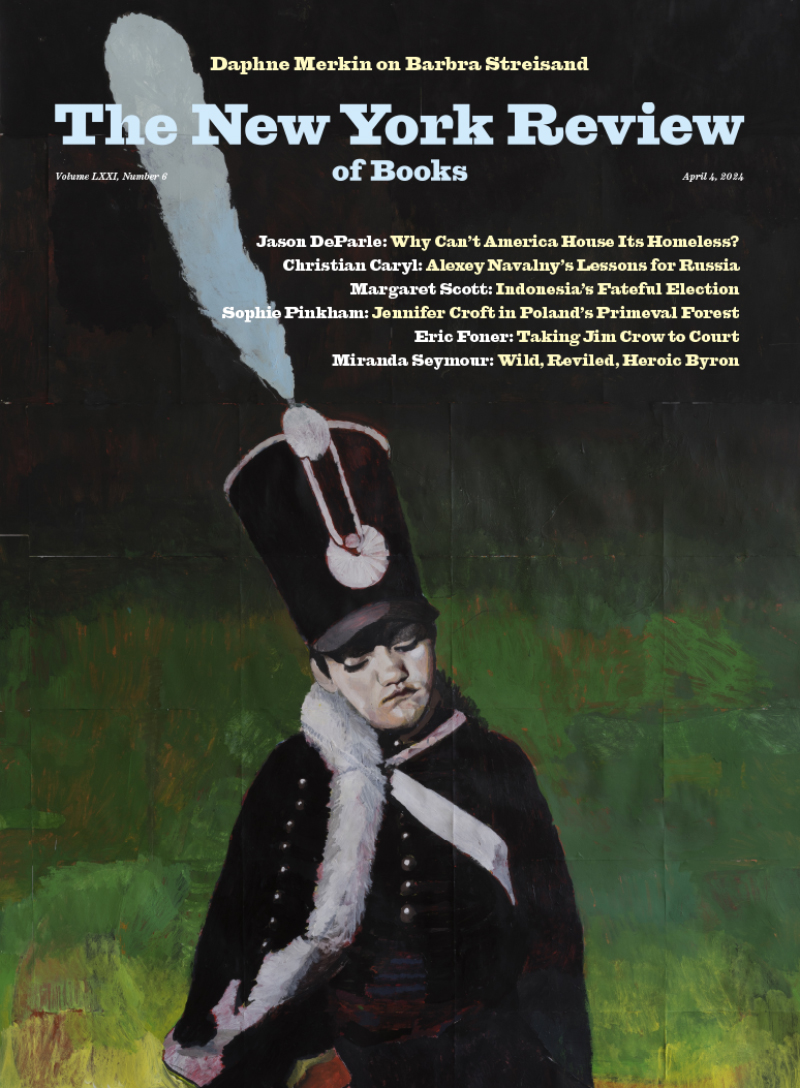
Before you purchase audiobooks and ebooks
Please note that audiobooks and ebooks purchased from this site must be accessed on the Princeton University Press app. After you make your purchase, you will receive an email with instructions on how to download the app. Learn more about audio and ebooks .
Support your local independent bookstore.
- United States
- United Kingdom
Dostoevsky: The Stir of Liberation, 1860-1865
Volume three of one of the greatest literary biographies of our time
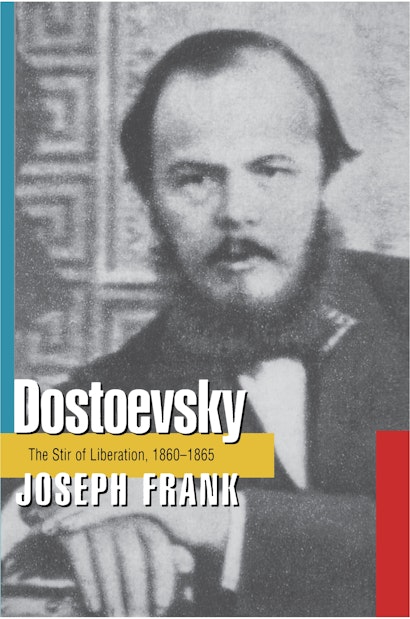
- Download Cover
Joseph Frank’s award-winning, five-volume Dostoevsky is widely recognized as the best biography of the Russian novelist in any language and one of the greatest literary biographies ever written. In this monumental work, Frank blends biography, intellectual history, and literary criticism to illuminate Dostoevsky’s works and set them in their personal, historical, and ideological context. More than a biography in the usual sense, this is a cultural history of nineteenth-century Russia, providing both a rich picture of the world in which Dostoevsky lived and a major reinterpretation of his life and work. This volume begins with the writer’s return to Saint Petersburg after a ten-year Siberian exile and traces how his engagement in the cultural and social ferment of Russia in the early 1860s led to his discovery of the themes that would underlie his mature masterpieces.
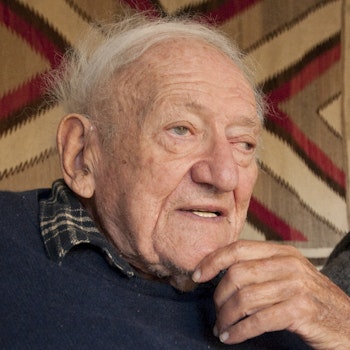
"A narrative of such compelling precision, thoroughness and insight as to give the reader a sense not just of acquaintanceship, but of complete identification with Dostoevsky, of looking through his eyes and understanding with his mind."—Helen Muchnic, Boston Globe
"This is unquestionably the best account we have of Dostoevsky in his time."—Donald Fanger, New Republic
"Will rightly be considered one of the finest achievements of American literary scholarship."—René Wellek, Washington Post
Stay connected for new books and special offers. Subscribe to receive a welcome discount for your next order.
- ebook & Audiobook Cart
Biography of Fyodor Dostoevsky, Russian Novelist
Author of 'Crime and Punishment'
Heritage Images/Getty Images
- Authors & Texts
- Top Picks Lists
- Study Guides
- Best Sellers
- Plays & Drama
- Shakespeare
- Short Stories
- Children's Books
:max_bytes(150000):strip_icc():format(webp)/ThoughtCo_Amanda_Prahl_webOG-48e27b9254914b25a6c16c65da71a460.jpg)
- M.F.A, Dramatic Writing, Arizona State University
- B.A., English Literature, Arizona State University
- B.A., Political Science, Arizona State University
Fyodor Dostoevsky (November 11, 1821 – February 9, 1881) was a Russian novelist. His works of prose deal heavily with philosophical, religious, and psychological themes and are influenced by the complicated social and political milieu of nineteenth-century Russia.
Fast Facts: Fyodor Dostoevsky
- Full Name: Fyodor Mikhailovich Dostoevsky
- Known For: Russian essayist and novelist
- Born: November 11, 1821 in Moscow, Russia
- Parents: Dr. Mikhail Andreevich and Maria (née Nechayeva) Dostoevsky
- Died: February 9, 1881 in St. Petersburg, Russia
- Education: Nikolayev Military Engineering Institute
- Selected Works: Notes from Underground (1864), Crime and Punishment (1866), The Idiot (1868–1869), Demons (1871–1872), The Brothers Karamazov (1879–1880)
- Spouses: Maria Dmitriyevna Isaeva (m. 1857–1864), Anna Grigoryevna Snitkina (m. 1867–1881)
- Children: Sonya Fyodorovna Dostoevsky (1868–1868), Lyubov Fyodorovna Dostoevsky (1869–1926), Fyodor Fyodorovich Dostoevsky (1871–1922), Alexey Fyodorovich Dostoevsky (1875–1878)
- Notable Quote: “Man is a mystery. It needs to be unravelled, and if you spend your whole life unravelling it, don't say that you've wasted time. I am studying that mystery because I want to be a human being.”
Dostoevsky descended from minor Russian nobility, but by the time he was born, several generations down the line, his direct family did not bear any titles of nobility. He was the second son of Mikhail Andreevich Dostoevsky and Maria Dostoevsky (formerly Nechayeva). On Mikhail’s side, the family profession was the clergy, but Mikhail instead ran away, broke ties with his family, and enrolled in medical school in Moscow , where he became first a military doctor and, eventually, a doctor at the Mariinsky Hospital for the poor. In 1828, he was promoted to collegiate assessor, which gave him status equal to certain nobles.
Along with his older brother (named Mikhail after their father), Fyodor Dostoevsky had six younger siblings, five of whom lived to adulthood. Although the family was able to acquire a summer estate away from the city, most of Dostoevsky’s childhood was spent in Moscow at the physician’s residence on the grounds of Mariinsky Hospital, which meant that he observed the sick and impoverished from a very young age. From a similarly young age, he was introduced to literature, beginning with fables , fairy tales , and the Bible, and soon branching out into other genres and authors.
As a boy, Dostoevsky was curious and emotional, but not in the best physical health. He was sent first to a French boarding school, then to one in Moscow, where he felt largely out of place among his more aristocratic classmates. Much like the experiences and encounters of his childhood, his life at boarding school later found its way into his writings.
Academia, Engineering, and Military Service
When Dostoevsky was 15, he and his brother Mikhail were both forced to leave their academic studies behind and begin pursuing military careers at St. Petersburg’s Nikolayev Military Engineering School, which was free to attend. Eventually, Mikhail was rejected for ill health, but Dostoevsky was admitted, albeit rather unwillingly. He had little interest in math, science, engineering, or the military as a whole, and his philosophical, stubborn personality didn’t fit in with his peers (although he did earn their respect, if not their friendship).
In the late 1830s, Dostoevsky suffered several setbacks. In the fall of 1837, his mother died of tuberculosis . Two years later, his father died. The official cause of death was determined to be a stroke, but a neighbor and one of the younger Dostoevsky brothers spread a rumor that the family’s serfs had murdered him. Later reports suggested that young Fyodor Dostoevsky suffered an epileptic seizure around this time, but the sources for this story were later proved unreliable.
After his father’s death, Dostoevsky passed his first set of exams and became an engineer cadet, which allowed him to move out of academy housing and into a living situation with friends. He often visited Mikhail, who had settled in Reval, and attended cultural events such as the ballet and the opera. In 1843, he secured a job as a lieutenant engineer, but he was already distracted by literary pursuits. He began his career by publishing translations; his first, a translation of Honoré de Balzac's novel Eugénie Grandet , was published in the summer of 1843. Although he published several translations around this time, none of them were particularly successful, and he found himself struggling financially.
Early Career and Exile (1844-1854)
- Poor Folk (1846)
- The Double (1846)
- "Mr. Prokharchin" (1846)
- The Landlady (1847)
- "Novel in Nine Letters" (1847)
- "Another Man's Wife and a Husband under the Bed" (1848)
- "A Weak Heart" (1848)
- "Polzunkov" (1848)
- "An Honest Thief" (1848)
- "A Christmas Tree and a Wedding" (1848)
- "White Nights" (1848)
- "A Little Hero" (1849)
Dostoevsky hoped that his first novel, Poor Folk , would be enough of a commercial success to help pull him out of his financial difficulties, at least for the time being. The novel was completed in 1845, and his friend and roommate Dmitry Grigorovitch was able to help him get the manuscript in front of the right people in the literary community. It was published in January 1846 and became an immediate success, both critically and commercially. In order to focus more on his writing, he resigned his military position. In 1846, his next novel, The Double , was published.
As he immersed himself further in the literary world, Dostoevsky began embracing the ideals of socialism . This period of philosophical inquiry coincided with a downturn in his literary and financial fortunes: The Double was poorly received, and his subsequent short stories were as well, and he began suffering from seizures and other health problems. He joined a series of socialist groups , which provided him with assistance as well as friendship, including the Petrashevsky Circle (so named for its founder Mikhail Petrashevsky), who frequently met to discuss social reforms such as the abolition of serfdom and freedom of press and speech from censorship.
In 1849, however, the circle was denounced to Ivan Liprandi, a government official at the Ministry of Internal Affairs, and accused of reading and circulating banned works that criticized the government. Fearing a revolution, the government of Tsar Nicholas I deemed these critics to be very dangerous criminals. They were sentenced to be executed and were only reprieved at the last possible moment when a letter from the tsar arrived just before the execution, commuting their sentences to exile and hard labor followed by conscription . Dostoyevsky was exiled to Siberia for his sentence, during which time he suffered several health complications but earned the respect of many of his fellow prisoners.
Return From Exile (1854-1865)
- Uncle's Dream (1859)
- The Village of Stepanchikovo (1859)
- Humiliated and Insulted (1861)
- The House of the Dead (1862)
- "A Nasty Story" (1862)
- Winter Notes on Summer Impressions (1863)
- Notes from Underground (1864)
- "The Crocodile" (1865)
Dostoevsky completed his prison sentence in February 1854, and he published a novel based on his experiences, The House of the Dead , in 1861. In 1854, he moved to Semipalatinsk to serve out the rest of his sentence, forced military service in the Siberian Army Corps of the Seventh Line Battalion. While there, he began working as a tutor to the children of the nearby upper-class families.
It was in these circles that Dostoevsky first met Alexander Ivanovich Isaev and Maria Dmitrievna Isaeva. He soon fell in love with Maria, although she was married. Alexander had to take a new military posting in 1855, where he was killed, so Maria moved herself and her son in with Dostoevsky. After he sent a letter of formal apology in 1856, Dostoevsky had his rights to marry and to publish again restored; he and Maria married in 1857. Their marriage was not particularly happy, due to their differences in personality and his ongoing health problems. Those same health problems also led to him being released from his military obligations in 1859, after which he was allowed to return from exile and, eventually, move back to St. Petersburg.
He published a handful of short stories around 1860, including “A Little Hero,” which was the only work he produced while in prison. In 1862 and 1863, Dostoevsky took a handful of trips out of Russia and throughout western Europe. He wrote an essay, “Winter Notes on Summer Impressions,” inspired by these travels and critiquing a wide range of what he viewed as social ills, from capitalism to organized Christianity and more.
While in Paris, he met and fell in love with Polina Suslova and gambled away much of his fortune, which put him in a more severe situation come 1864, when his wife and brother both died, leaving him as the sole supporter of his stepson and his brother’s surviving family. Compounding matters, Epoch , the magazine he and his brother had founded, failed.
Successful Writing and Personal Turmoil (1866-1873)
- Crime and Punishment (1866)
- The Gambler (1867)
- The Idiot (1869)
- The Eternal Husband (1870)
- Demons (1872)
Fortunately, the next period of Dostoevsky’s life was to be considerably more successful. In the first two months of 1866, the first installments of what would become Crime and Punishment , his most famous work, were published. The work proved incredibly popular, and by the end of the year, he had also finished the short novel The Gambler .
To complete The Gambler on time, Dostoevsky engaged the help of a secretary, Anna Grigoryevna Snitkina, who was 25 years younger than him. The following year, they were married. Despite the significant income from Crime and Punishment , Anna was forced to sell her personal valuables to cover her husband’s debts. Their first child, daughter Sonya, was born in March 1868 and died only three months later.
Dostoevsky completed his next work, The Idiot , in 1869, and their second daughter, Lyubov, was born later that same year. By 1871, however, their family was in a dire financial situation yet again. In 1873, they founded their own publishing company, which published and sold Dostoevsky’s latest work, Demons . Fortunately, the book and the business were both successful. They had two more children: Fyodor, born in 1871, and Alexey, born in 1875. Dostoevsky wanted to start a new periodical, A Writer's Diary , but he was unable to afford the costs. Instead, the Diary was published in another publication, The Citizen , and Dostoevsky was paid an annual salary for contributing the essays.
Declining Health (1874-1880)
- The Adolescent (1875)
- "A Gentle Creature" (1876)
- "The Peasant Marey" (1876)
- "The Dream of a Ridiculous Man" (1877)
- The Brothers Karamazov (1880)
- A Writer's Diary (1873–1881)
In March 1874, Dostoevsky decided to leave his work at The Citizen ; the stress of the work and the constant surveillance, court cases, and interference by the government proved too much for him and his precarious health to handle. His doctors suggested he leave Russia for a time to try to shore up his health, and he spent some months away before returning to St. Petersburg in July 1874. He eventually finished an ongoing work, The Adolescent , in 1875.
Dostoevsky continued working on his A Writer’s Diary , which included a range of essays and short stories surrounding some of his favorite themes and concerns. The compilation became his most successful publication ever, and he began receiving more letters and visitors than ever before. It was so popular, in fact, that (in a major reversal from his earlier life), he was summoned to the court of Tsar Alexander II to present him with a copy of the book and to receive the tsar’s request to help educate his sons.
Although his career was more successful than ever, his health suffered, with four seizures in the span of a single month in early 1877. He also lost his young son, Alexei, to a seizure in 1878. Between 1879 and 1880, Dostoevsky received a slew of honors and honorary appointments, including the Russian Academy of Sciences, the Slavic Benevolent Society, and the Association Littéraire et Artistique Internationale. When he was elected vice president of the Slavic Benevolent Society in 1880, he gave a speech that was praised widely but also criticized harshly, leading to further stress on his health.
Literary Themes and Styles
Dostoevsky was heavily influenced by his political, philosophical, and religious beliefs, which were in turn influenced by the situation in Russia during his time. His political beliefs were intrinsically tied to his Christian faith, which placed him in an unusual position: he decried socialism and liberalism as atheist and degrading to society as a whole, but also disapproved of more traditional arrangements like feudalism and oligarchy . Still, he was a pacifist and despised ideas of violent revolution. His faith and his belief that morality was the key to improving society are threaded through most of his writings.
In terms of writing style, Dostoevsky’s hallmark was his use of polyphony—that is, the weaving together of multiple narratives and narrative voices within a single work. Rather than have an overarching voice of the author who has all the information and steers the reader towards the “right” knowledge, his novels tend to simply present characters and viewpoints and let them develop more naturally. There is no one “truth” within these novels, which ties in closely with the philosophical bend to much of his work.
Dostoevsky’s works often explore human nature and all the psychological quirks of humankind. In some regards, there are Gothic underpinnings to these explorations, as seen in his fascination with dreams, irrational emotions, and the concept of moral and literal darkness, as seen in everything from The Brothers Karamazov to Crime and Punishment and more. His version of realism, psychological realism , was concerned particularly with the reality of the inner lives of humans, even more so than the realism of society at large.
On January 26, 1881, Dostoevsky suffered two pulmonary hemorrhages in quick succession. When Anna called for a doctor, the prognosis was very grim, and Dostoevsky suffered a third hemorrhage soon after. He summoned his children to see him before his death and insisted on the Parable of the Prodigal Son being read to them—a parable about sin, repentance, and forgiveness. Dostoevsky died on February 9, 1881.
Dostoevsky was buried in the Tikhvin Cemetery at the Alexander Nevsky Convent in St. Petersburg, in the same cemetery as his favorite poets, Nikolay Karamzin and Vasily Zhukovsky. The exact number of mourners at his funeral is unclear, as different sources have reported numbers as varied as 40,000 to 100,000. His gravestone is inscribed with a quote from the Gospel of John: “Verily, verily, I say unto you, Except a corn of wheat fall into the ground and die, it abideth alone: but if it dies, it bringeth forth much fruit.”
Dostoevsky’s particular brand of human-focused, spiritual, and psychological writing has played a part in inspiring a wide range of modern cultural movements, including surrealism, existentialism, and even the Beat Generation, and he is considered a major forerunner of Russian existentialism, expressionism, and psychoanalysis.
In general, Dostoevsky is considered one of the great authors of Russian literature . Like most writers, he was ultimately received with great praise alongside severe criticism; Vladimir Nabokov was particularly critical of Dostoevsky and of the praise with which he was received. On the opposite side of things, however, luminaries including Franz Kafka, Albert Einstein, Friedrich Nietzsche, and Ernest Hemingway all spoke of him and his writing in glowing terms. To this day, he remains one of the most widely-read and studied authors, and his works have been translated across the globe.
- Frank, Joseph. Dostoevsky: The Mantle of the Prophet, 1871–1881 . Princeton University Press, 2003.
- Frank, Joseph. Dostoevsky: The Seeds of Revolt, 1821–1849 . Princeton University Press, 1979.
- Frank, Joseph. Dostoevsky: A Writer in His Time . Princeton University Press, 2009.
- Kjetsaa, Geir. Fyodor Dostoyevsky: A Writer's Life . Fawcett Columbine, 1989.
- Characters' Thoughts and Motivations in Psychological Realism
- "Crime and Punishment"
- Biography of Czar Nicholas II, Last Czar of Russia
- Timeline of the Russian Revolutions: 1905
- Timeline of the Russian Revolutions: 1906 - 1913
- Execution of Czar Nicholas II of Russia and His Family
- Top 10 Books for High School Seniors
- Biography of George Eliot, English Novelist
- Biography of Ernest Hemingway, Pulitzer and Nobel Prize Winning Writer
- Biography of Emily Brontë, English Novelist
- The Greatest Works of Russian Literature Everyone Should Read
- Biography of Charlotte Brontë
- Biography of Lydia Maria Child, Activist and Author
- World War II: Marshal Georgy Zhukov
- Russian Revolution Timeline
- Biography of Anne Brontë, English Novelist

- Biographies & Memoirs

Enjoy fast, free delivery, exclusive deals, and award-winning movies & TV shows with Prime Try Prime and start saving today with fast, free delivery
Amazon Prime includes:
Fast, FREE Delivery is available to Prime members. To join, select "Try Amazon Prime and start saving today with Fast, FREE Delivery" below the Add to Cart button.
- Cardmembers earn 5% Back at Amazon.com with a Prime Credit Card.
- Unlimited Free Two-Day Delivery
- Streaming of thousands of movies and TV shows with limited ads on Prime Video.
- A Kindle book to borrow for free each month - with no due dates
- Listen to over 2 million songs and hundreds of playlists
- Unlimited photo storage with anywhere access
Important: Your credit card will NOT be charged when you start your free trial or if you cancel during the trial period. If you're happy with Amazon Prime, do nothing. At the end of the free trial, your membership will automatically upgrade to a monthly membership.
Buy new: $16.90
Return this item for free.
Free returns are available for the shipping address you chose. You can return the item for any reason in new and unused condition: no shipping charges
- Go to your orders and start the return
- Select the return method

Download the free Kindle app and start reading Kindle books instantly on your smartphone, tablet, or computer - no Kindle device required .
Read instantly on your browser with Kindle for Web.
Using your mobile phone camera - scan the code below and download the Kindle app.

Image Unavailable

- To view this video download Flash Player
Fyodor Dostoevsky: The Biography of the Greatest Russian Novelist, Written by His Daughter, Aimée Dostoevsky Paperback – September 2, 2021
Purchase options and add-ons.
The biography of Russia’s greatest novelist by his daughter, Aimée Dostoevsky. Includes chapters on the origins of the Dostoevsky family, the childhood of Fyodor Dostoevsky, adolescence, the Petrachevsky conspiracy, prison life, Dostoevsky as soldier, Dostoevsky’s marriages, his travels, Dostoevsky as a father, his relations with Turgenev and Tolstoy, Dostoevsky as Slavophile and Dostoevsky’s last days.
The story of the great novelist told by his daughter. “She gives a familiar and intimate account of his daily life, character, and habits. She is naturally her father’s partisan in all quarrels that he had. But there are facts and points of view in this book that can be found in no other work. To those who have read Dostoevsky’s novels these new and intimate revelations will be of keen interest, but even if one has never read any of the novels, this biography is written in such a manner as to hold the attention of the reader from beginning to end.” — William Lyon Phelps
Publisher's note for the printed edition: in order to be more enjoyable during reading, this book is in 6" x 9" format. In the same spirit, the paper is cream-colored, which causes less fatigue to the eyes than white paper. All our publications are carefully crafted, both in terms of typography as well as design.
Publisher's note for the Kindle edition: our Kindle publications are carefully crafted, with Table of Contents, Index, Footnotes and References when applicable. A strong emphasis has been put on the typography as well as the design.
Your comments are welcome at discoverypublisher.com — Thank you for choosing Discovery Publisher.
- Print length 220 pages
- Language English
- Publication date September 2, 2021
- Dimensions 6 x 0.55 x 9 inches
- ISBN-10 1788945700
- ISBN-13 978-1788945707
- See all details

Frequently bought together

Similar items that may deliver to you quickly

Product details
- Publisher : Discovery Publisher (September 2, 2021)
- Language : English
- Paperback : 220 pages
- ISBN-10 : 1788945700
- ISBN-13 : 978-1788945707
- Item Weight : 9.7 ounces
- Dimensions : 6 x 0.55 x 9 inches
- #270 in Historical Russia Biographies
- #426 in Philosopher Biographies
- #1,307 in Russian History (Books)
Customer reviews
Customer Reviews, including Product Star Ratings help customers to learn more about the product and decide whether it is the right product for them.
To calculate the overall star rating and percentage breakdown by star, we don’t use a simple average. Instead, our system considers things like how recent a review is and if the reviewer bought the item on Amazon. It also analyzed reviews to verify trustworthiness.
Reviews with images

- Sort reviews by Top reviews Most recent Top reviews
Top reviews from the United States
There was a problem filtering reviews right now. please try again later..
Top reviews from other countries
- Amazon Newsletter
- About Amazon
- Accessibility
- Sustainability
- Press Center
- Investor Relations
- Amazon Devices
- Amazon Science
- Start Selling with Amazon
- Sell apps on Amazon
- Supply to Amazon
- Protect & Build Your Brand
- Become an Affiliate
- Become a Delivery Driver
- Start a Package Delivery Business
- Advertise Your Products
- Self-Publish with Us
- Host an Amazon Hub
- › See More Ways to Make Money
- Amazon Visa
- Amazon Store Card
- Amazon Secured Card
- Amazon Business Card
- Shop with Points
- Credit Card Marketplace
- Reload Your Balance
- Amazon Currency Converter
- Your Account
- Your Orders
- Shipping Rates & Policies
- Amazon Prime
- Returns & Replacements
- Manage Your Content and Devices
- Recalls and Product Safety Alerts
- Conditions of Use
- Privacy Notice
- Your Ads Privacy Choices
The Best Books by Fyodor Dostoyevsky You Should Read

Fyodor Dostoyevsky is well and truly one of Russia ‘s most influential writers. The many hardships of his life found reflection in his work, helping him to create memorable characters that together form a detailed image of 19th-century Russia. Dostoyevsky brings forward ‘the little man’, a person you would pass on the street without giving a second thought, but in fact who represents the life of the majority of people. They are the backbone of a country, and only through understanding the life of a voiceless human can the psychological portrait of a country begin to be painted. Below are the best Dostoyevsky books that will acquaint you with some of his most memorable characters.
Did you know you can now travel with Culture Trip? Book now and join one of our premium small-group tours to discover the world like never before.
Crime and Punishment (1866)
The best way to get acquainted with Dostoyevsky is by reading Crime and Punishment . One of the best-known books by the author, as well as a must-read for all Russian kids at school, this one is truly a classic. The story of a poor man that commits a crime in order to survive, but then deals with a greater struggle than poverty – extreme guilt. Along the way, the reader encounters some of the lowest and pitiful creatures that inhabit the streets of St Petersburg . As defined by Dostoyevsky himself, the novel is a psychological work, and the author stands next to the characters rather than controlling them.

If you ever feel that there isn’t enough kindness in the world, then it is certainly time to read The Idiot . The main character, Myshkin, is one of the most gentle and kind characters in literature, stuck in an imperfect world of judgemental and cunning people. He has just returned after undergoing treatment in a Swiss mental institution. His involvement in a scandalous love affair and the mistreatment by the people around him bring him back to where he started – a mental institution.

Become a Culture Tripper!
Sign up to our newsletter to save up to 500$ on our unique trips..
See privacy policy .

Poor Folk (1846)
This epistolary novel is written as an exchange of letters between two poor people in St Petersburg – the elderly Makar Devushkin and his beloved Varvara Dobroselova. Despite the slightly ironic tone, the work is an important social novel that gives voice to the disadvantaged people in society. Devushkin’s love for his distant cousin Varvara leads him to continuously search for money to help support her, hoping one day to eventually marry her. But despite his hopes, her parents disapprove of him and a richer man proposes to her, so Varvara is faced with a choice that many young women used to stand against.

Demons (1871)
Demons was one of Dostoyevsky’s later works and one of his most politicised pieces. The plot is based on the story of the murder of a student named Ivan Ivanov, which was allegedly committed by members of a revolutionary circle. The novel was a reflection of the growing radical movements among the intelligentsia and the first signs of terrorism. The work is a reflection of Dostoyevsky’s thoughts on the protesting part of society of his time and perhaps also a reflection on his participation in free-thinking circles.

The Gambler (1866)
Ironically, this novel was written for money, because of Dostoyevsky having lost money. The commission for the work came after Dostoyevsky lost a significant sum of money belonging not just to himself, but also to his friend whilst gambling. Due to the burdening debt, the writer made a contract to complete work on The Gambler in a very short period of time. The basis of the novel was the idea of describing the psychological state of gambling that engulfs a person involved in the game. Unfortunately for Dostoyevsky , his gambling losses repeating soon after, and from then on he made a promise to his wife never to play again.

The Insulted and Humiliated (1861)
The idea to start writing this novel came to Dostoyevsky when he moved to St Petersburg, after having spent time in exile. To a certain extent, the novel is autobiographical and is told from the point of view of a young writer, Vanya, who is struggling to make a living in the 1840s. On the novel’s pages, St Petersburg becomes an open book, and many accurate details of the character’s lives make the city come to life, similar to the works of other writers of the 19th century, such as Charles Dickens .

The Brothers Karamazov (1879)
The novel is Dostoyevsky’s final work – completed two months before the writer’s death. The complicated plot explores challenging questions, such as freedom, religion and ethics. As some critics suggest, it is a reflection of the different stages in the writer’s life, represented by the three brothers. The overall plot is interwoven with a story of murder, love and societal issues.

KEEN TO EXPLORE THE WORLD?
Connect with like-minded people on our premium trips curated by local insiders and with care for the world
Since you are here, we would like to share our vision for the future of travel - and the direction Culture Trip is moving in.
Culture Trip launched in 2011 with a simple yet passionate mission: to inspire people to go beyond their boundaries and experience what makes a place, its people and its culture special and meaningful — and this is still in our DNA today. We are proud that, for more than a decade, millions like you have trusted our award-winning recommendations by people who deeply understand what makes certain places and communities so special.
Increasingly we believe the world needs more meaningful, real-life connections between curious travellers keen to explore the world in a more responsible way. That is why we have intensively curated a collection of premium small-group trips as an invitation to meet and connect with new, like-minded people for once-in-a-lifetime experiences in three categories: Culture Trips, Rail Trips and Private Trips. Our Trips are suitable for both solo travelers, couples and friends who want to explore the world together.
Culture Trips are deeply immersive 5 to 16 days itineraries, that combine authentic local experiences, exciting activities and 4-5* accommodation to look forward to at the end of each day. Our Rail Trips are our most planet-friendly itineraries that invite you to take the scenic route, relax whilst getting under the skin of a destination. Our Private Trips are fully tailored itineraries, curated by our Travel Experts specifically for you, your friends or your family.
We know that many of you worry about the environmental impact of travel and are looking for ways of expanding horizons in ways that do minimal harm - and may even bring benefits. We are committed to go as far as possible in curating our trips with care for the planet. That is why all of our trips are flightless in destination, fully carbon offset - and we have ambitious plans to be net zero in the very near future.

A Guide to Cautionary Russian Proverbs and What They Mean

The Soviet Union’s Best Heart-Throbs and Pinups

Guides & Tips
A 48 hour guide to astrakhan, russia.

Zhenotdel: The Soviet Union's Feminist Movement

Unusual Facts About the Soviet Union

A Soviet Pilot Went Missing in Afghanistan and Was Found 30 Years Later

Food & Drink
The best halal restaurants in kazan.

Russian Last Names and Their Meanings

The Mystery Behind Russia's Buddhist "Miracle"

Incredible Photos From the Longest Bike Race in the World

See & Do
Russia's most remote holiday destinations.

Restaurants
The best halal restaurants in kaliningrad, winter sale offers on our trips, incredible savings.

- Post ID: 388346
- Sponsored? No
- View Payload
Quick Facts
Fyodor Dostoevsky’s Best Books 📚
Take a look at four of Fyodor Dostoevsky's very best works. These works are universally adored for their literary quality and influence.

Written by Israel Njoku
Degree in M.C.M with focus on Literature from the University of Nigeria, Nsukka.
Fyodor Dostoevsky achieved literary fame at an early period of his career, with his books displaying the psychological depth and maturity that has come to be associated with him. Over a long career of critical acclaim, a few books stand out.
The Brothers Karamazov

Written at the tail end of Dostoevsky’s life, The Brothers Karamazov represents a culmination of Dostoevsky’s most passionate ideas in their most mature form. Revolving around a patricide with three children and a lover at the very center, we are treated to a story that explores themes like faith, passion, justice, among others. With typical insight and penetration, Fyodor Dostoevsky is able to bore deep into the recesses of the human psyche to create well-rounded and relatable characters.
The story is about the impact of the murder of the patriarch, the irresponsible Pavlovich Karamazov, on his four children, from the passionate and tempestuous Dmitry, to the cold and rational Ivan, down to the pious Alyosha. It explores questions about the obligations of the parent, the husband, the intellectual, and the religious. There are questions asked about the fairness of God himself, the injustice of the world, and the defects in our just justice system.
Notes from Underground
Notes from Underground have been described as one of the first existentialist novels to surface. This work sees Dostoevsky use the character of a bitter and isolated middle-aged man to criticize certain liberal ideas like rational egoism, utilitarianism, the premium on logic, and a number of other ideas.
The book is divided into two parts, with the first part taking us through a look down this unnamed “underground” man’s diaries containing his thoughts on a number of contemporary issues. His bitterness toward society, intense skepticism of human nature, and alienation are obvious. The second part of the book features a number of events that involve the narrator- events that drive him down this dark path of isolation and bitterness at humans.
Crime and Punishment

Crime and Punishment is Dostoevsky’s most popular and widely read work. It features a young man’s corruption at the hands of harmful radical ideologies which drives him to commit murder and robbery. Primarily motivated by his desire to prove that he was superior and above conventional standards, the main character, Raskolnikov, ends up killing two women, one of whom he deems surplus to humanity’s requirements by virtue of her evil deeds.
Through his interaction with a wide variety of characters with a variety of predispositions, Raskolnikov comes to better understand himself and his motivations. Superior intellectual arguments eventually convince him of the folly of his ideas. The book represents Dostoevsky’s attempts to display the danger and folly of some of the radical ideas he came to discover when he returned to Russian society.

The Idiot is another of Dostoevsky’s major works. It represents his attempt to portray a positively good man, essentially the closest approximation of a Christ-like character with the intent of observing how he would fare in an immoral and worldly society.
This character, Prince Mushkin, because of his goodness and childlike innocence, is seen as an idiot by a worldly society who could not understand him. There is a sharp contrast between Mushkin’s perception of the world and those around him.
Mishkin arrives in Saint Petersburg as a poor psychiatric patient with an inheritance he is yet to access. He is immediately thrust upon the vile politics and immoral social organization of the St. Petersburg society he goes to. He exerts a profound influence on this society, but rather than changing it for the better, it is he who is permanently damaged by the rot he encounters.
What book first brought Dostoevsky fame?
‘Poor Folks ‘. Dostoevsky’s first novel written between 1844-1845, ‘Poor Folks’ explores the romance between two poor distant cousins and was lauded as an important humanitarian and social novel by notable contemporary critics like Vissarion Belinsky and Alexander Herzen.
How long does it take Dostoevsky to write a novel?
The answer varies on the purpose and length of the novel. Dostoevsky wrote ‘The Gambler’ in just 26 days, but also spent roughly two years on ‘ The Brother’s Karamazov’.
Which novel is considered Dostoevsky’s greatest?
Although ‘ Crime and Punishment ‘ is his most popular, ‘ The Brothers Karamazov ‘ is often considered his best work, as it is a culmination of his ideas in their most mature and final form.

About Israel Njoku
Israel loves to delve into rigorous analysis of themes with broader implications. As a passionate book lover and reviewer, Israel aims to contribute meaningful insights into broader discussions.

Cite This Page
Njoku, Israel " Fyodor Dostoevsky's Best Books 📚 " Book Analysis , https://bookanalysis.com/fyodor-dostoevsky/best-books/ . Accessed 18 March 2024.
It'll change your perspective on books forever.
Discover 5 Secrets to the Greatest Literature
- NONFICTION BOOKS
- BEST NONFICTION 2023
- BEST NONFICTION 2024
- Historical Biographies
- The Best Memoirs and Autobiographies
- Philosophical Biographies
- World War 2
- World History
- American History
- British History
- Chinese History
- Russian History
- Ancient History (up to 500)
- Medieval History (500-1400)
- Military History
- Art History
- Travel Books
- Ancient Philosophy
- Contemporary Philosophy
- Ethics & Moral Philosophy
- Great Philosophers
- Social & Political Philosophy
- Classical Studies
- New Science Books
- Maths & Statistics
- Popular Science
- Physics Books
- Climate Change Books
- How to Write
- English Grammar & Usage
- Books for Learning Languages
- Linguistics
- Political Ideologies
- Foreign Policy & International Relations
- American Politics
- British Politics
- Religious History Books
- Mental Health
- Neuroscience
- Child Psychology
- Film & Cinema
- Opera & Classical Music
- Behavioural Economics
- Development Economics
- Economic History
- Financial Crisis
- World Economies
- How to Invest
- Artificial Intelligence/AI Books
- Data Science Books
- Sex & Sexuality
- Death & Dying
- Food & Cooking
- Sports, Games & Hobbies
- FICTION BOOKS
- BEST FICTION 2023
- NEW Fiction
- World Literature
- Literary Criticism
- Literary Figures
- Classic English Literature
- American Literature
- Comics & Graphic Novels
- Fairy Tales & Mythology
- Historical Fiction
- Crime Novels
- Science Fiction
- Short Stories
- South Africa
- United States
- Arctic & Antarctica
- Afghanistan
- Myanmar (Formerly Burma)
- Netherlands
- Kids Recommend Books for Kids
- High School Teachers Recommendations
- Prizewinning Kids' Books
- Popular Series Books for Kids
- BEST BOOKS FOR KIDS (ALL AGES)
- Ages Baby-2
- Books for Teens and Young Adults
- THE BEST SCIENCE BOOKS FOR KIDS
- BEST KIDS' BOOKS OF 2023
- BEST BOOKS FOR TEENS OF 2023
- Best Audiobooks for Kids
- Environment
- Best Books for Teens of 2023
- Best Kids' Books of 2023
- Political Novels
- New History Books
- New Literary Fiction
- New Historical Fiction
- New Biography
- New Memoirs
- New World Literature
- New Economics Books
- New Climate Books
- New Math Books
- New Philosophy Books
- New Psychology Books
- New Physics Books
- THE BEST AUDIOBOOKS
- Actors Read Great Books
- Books Narrated by Their Authors
- Best Audiobook Thrillers
- Best History Audiobooks
- Nobel Literature Prize
- Booker Prize (fiction)
- Baillie Gifford Prize (nonfiction)
- Financial Times (nonfiction)
- Wolfson Prize (history)
- Royal Society (science)
- Pushkin House Prize (Russia)
- Walter Scott Prize (historical fiction)
- Arthur C Clarke Prize (sci fi)
- The Hugos (sci fi & fantasy)
- Audie Awards (audiobooks)

Fyodor Dostoevsky
Fyodor Dostoevsky (1821-1881) was one of Russia’s great novelists. While best known as the author of Crime and Punishment and The Brothers Karamazov, several of his other novels have also been recommended on Five Books, including Memoirs from the House of the Dead , a fictionalized account of his time in a Siberian labour camp.
Dostoevsky’s life was an eventful one, and you can read more about it in our interview with novelist Alex Christofi, author of Dostoevsky in Love, a biography that blends his life and his writing. Christofi also offers some tips on which Dostoevsky books to start off with if you’re not ready for the philosophical heft of his last and greatest work, The Brothers Karamazov.
Books by Fyodor Dostoevsky
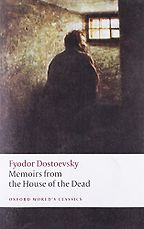
Memoirs from the House of the Dead
By fyodor dostoevsky, translated by jessie coulson.
Memoirs from the House of the Dead by Fyodor Dostoevsky is written as fiction but is based on his time in a Siberian prison camp at Omsk. This is not a book about Kazakhstan, but we’ve included it because, on his release, Dostoevsky lived in exile (which included military service) in the Kazakh city of Semipalatinsk. You can visit one of the houses he lived in, which has been turned into a museum.
Read expert recommendations
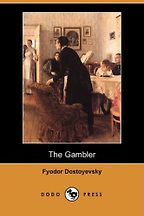
The Gambler
By fyodor dostoevsky.
“I like this novel due to the extraordinary background on how it was written, at the same time as he was writing Crime and Punishment . He had a certain time frame and a page count of 160 pages to submit within four months. He had agreed a contract in September that he had to submit a new novel to the publishers, Stellovsky, by the first of November. In the event of failure to produce this book Stellovsky would be given the rights to reprint all Dostoyevsky’s past and future work at any time and without further payment. The result was The Gambler. “ Read more...
Lynda La Plante recommends the best Crime Novels
Lynda La Plante , Thriller and Crime Writer
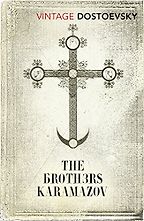
The Brothers Karamazov
“ The Brothers Karamazov is a real detective novel, a very rare phenomenon for 19th-century Russian fiction. We have a mysterious murder here, we have several suspects, we have a courtroom investigation, and we do not know eventually, not for sure, who is the culprit.” Read more...
Five Mysteries Set in Russia
Boris Akunin , Thriller and Crime Writer
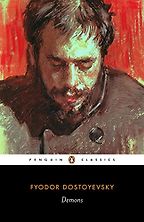
“It’s a strange mixture of Christianity, the industrial revolution, the Russian national character. But it is also about 20th-century Russia. It’s about what is coming. All we were talking about from the days of Basil the Dark One, the 18th-century age of Enlightenment, Pushkin, Gogol, Lermontov, the golden age of Russian culture: it all culminates in Demons. Demons is Russia’s future… It gives you a flavour of the nascent 20th-century Russia with all its ups and downs: the literature, horrors, terrors, revolutions, bloodshed, the peaks, the depths – you already feel it.” Read more...
The best books on Tsarist Russia
Andrei Maylunas , Historian
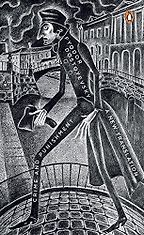
Crime and Punishment
“There was a real murder in Moscow in 1865, two elderly women killed by axe. Dostoyevsky was deeply moved by this crime. When a writer is deeply moved, he writes a novel. When it is a great writer, the story turns out to be a great novel. Crime and Punishment is on my list because I wrote my own version of the events. In a novel called F.M. (Dostoyevsky’s initials, Fyodor Mikhailovich) I introduce a newly discovered manuscript by Dostoevsky, a first version of Crime and Punishmen t, and it is a 100% mystery about a serial killer.” Read more...
Interviews where books by Fyodor Dostoevsky were recommended
Five mysteries set in russia , recommended by boris akunin.

Crime and Punishment by Fyodor Dostoevsky

The Brothers Karamazov by Fyodor Dostoevsky
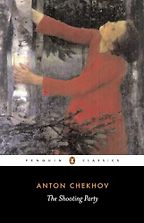
The Shooting Party by Anton Chekhov
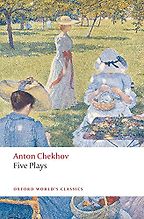
Five Plays: Ivanov, The Seagull, Uncle Vanya, Three Sisters, and The Cherry Orchard by Anton Chekhov
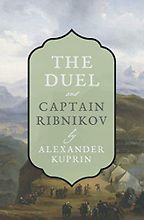
Captain Ribnikov by Alexander Kuprin
The golden age of mystery largely passed Russia by, but that doesn’t mean there weren’t some great crime novels produced over the last 150 years. Bestselling crime novelist Boris Akunin, who was born Grigory Chkhartishvili in Soviet Georgia and now lives in exile in London, recommends five Russian mysteries—great works of literature that happen to also have a crime at their heart. If you’d like to see Boris/Grigory in person, he’s speaking at the Oxford Literary Festival on 18 March, 2024 at 6pm .
The Best Fyodor Dostoevsky Books , recommended by Alex Christofi
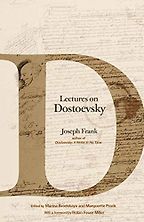
Lectures on Dostoevsky by Joseph Frank

Memoirs from the House of the Dead by Fyodor Dostoevsky, translated by Jessie Coulson
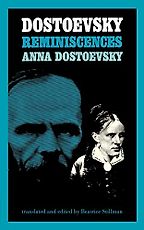
Dostoevsky: Reminiscences by Anna Dostoevsky
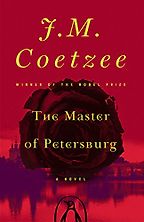
The Master of Petersburg: A Novel by J M Coetzee

His father had clawed his way up into the minor aristocracy, but Fyodor Dostoevsky chose to live the life of an impecunious author. He was sentenced to death, but his execution was stayed and he spent years in a Siberian labour camp instead. His books are about human compassion, but he was a difficult man who had trouble with his own personal relationships. Alex Christofi, author of a brilliant new biography of Dostoevsky, one of Russia’s greatest novelists, recommends five books to learn more about the man and his work—including the novel of which Tolstoy said he ‘didn’t know a better book in all our literature’.
Irvine Welsh recommends the best Crime Novels

The Cutting Room by Louise Welsh
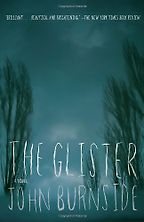
The Glister by John Burnside
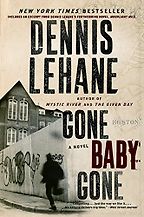
Gone Baby Gone by Dennis Lehane
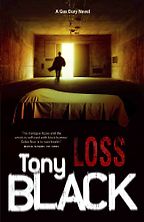
Loss by Tony Black
We learn much more from failure than we do from success, says Irvine Welsh. The author of Trainspotting recommends his own favourite crime novels.
The best books on Policing , recommended by John Timoney
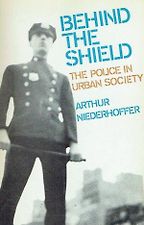
Behind the Shield by Arthur Niederhoffer
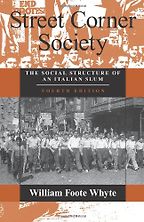
Street Corner Society by William Foote Whyte

The Bonfire of the Vanities by Tom Wolfe
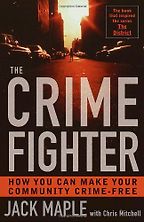
The Crime Fighter by Jack Maple
The youngest four-star chief in the history of the NYPD, and a Medal of Valor laureate, chooses books that address the topic of policing from many angles – from the practical to the poetic
The best books on Totalitarian Russia , recommended by Robert Service
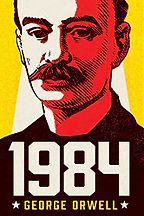
Nineteen Eighty-Four by George Orwell
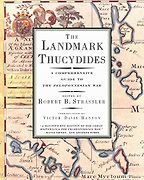
History of the Peloponnesian War by Thucydides

The Twelve by Alexander Blok
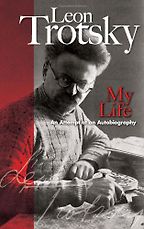
My Life by Leon Trotsky
Robert Service, Professor of Russian Studies at Oxford, when forced to choose between Lenin, Trotsky, and Stalin, says Stalin was definitely the worst of the lot. He takes a look at the dynamics of totalitarian Russia, gleaning insights from Thucydides to Orwell.
The best books on Tsarist Russia , recommended by Andrei Maylunas
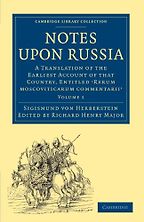
Notes on Russia by Sigismund von Herberstein
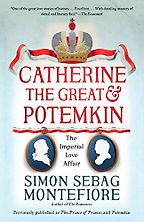
Catherine the Great and Potemkin: The Imperial Love Affair by Simon Sebag Montefiore

War and Peace by Leo Tolstoy
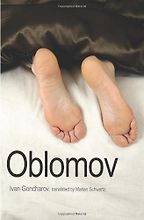
Oblomov by Ivan Goncharov

Demons by Fyodor Dostoevsky
From the days it was known as Muscovy to the Russian Empire described by the great novelists of the 19th century, historian Andrei Maylunas recommends books that give a feel for the country. Two are works of history, one is notes from a visiting ambassador in the 16th century, two are novels. All are entertaining to read and key to understanding the present.
The best books on Morality Without God , recommended by Kenan Malik
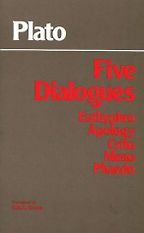
Five Dialogues by Plato (translated by GMA Grube)
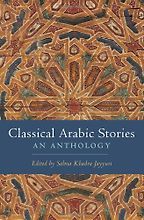
The Epistle of Forgiveness by Abul Ala al-Ma’arri
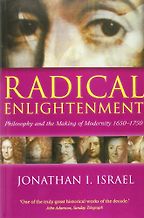
Radical Enlightenment by Jonathan Israel

The Myth of Sisyphus by Albert Camus
Religion is often presented as the guardian of moral values. The problem with this, says the author and broadcaster, is that it diminishes what it means to be human. He picks the best books on morality without God.
Rachel Kushner on Books That Influenced Her
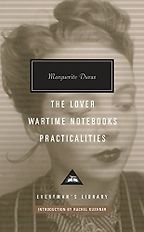
Practicalities by Marguerite Duras
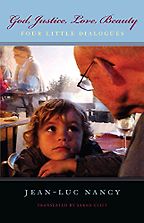
God, Justice, Love, Beauty: Four Dialogues by Jean-Luc Nancy
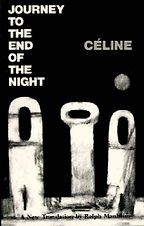
Journey to the End of the Night by Louis-Ferdinand Céline (translated by Ralph Manheim)

Pick-Up by Charles Willeford
Rachel Kushner, author of The Flamethrowers and The Mars Room , which has been shortlisted for the 2018 Man Booker Prize, discusses the five books that have most influenced her writing, from Dostoyevsky to Marguerite Duras. She muses on the question of what fiction can offer: “A novel itself, if it is good, and effective at whatever its particular aesthetic and philosophical aim is, can answer the question best, so that a novelist doesn’t have to.”
The best books on Moral Character , recommended by Christian B Miller
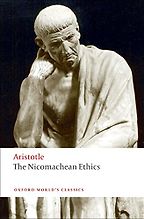
The Nicomachean Ethics by Aristotle
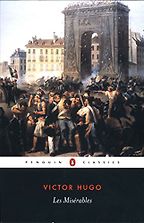
Les Misérables by Victor Hugo

Character Strengths and Virtues: A Handbook and Classification by Christopher Peterson and Martin Seligman
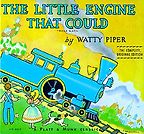
The Little Engine That Could by Watty Piper
Why do apparently ‘good’ people sometimes behave deplorably? Christian B Miller, professor of philosophy at Wake Forest University, selects five books that explore the subject of moral character and warns us to be cautious of making inferences about the underlying motives of others – and ourselves.
The best books on Christianity , recommended by Richard Harries
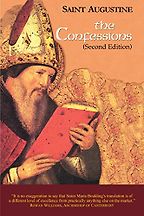
The Confessions by Augustine (translated by Maria Boulding)
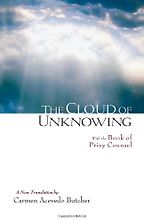
The Cloud of Unknowing by Anonymous
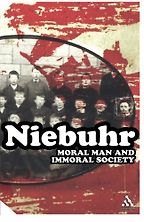
Moral Man and Immoral Society by Reinhold Niebuhr

On Christian Theology by Rowan Williams
The former bishop of Oxford tells us about books that explore what it means to be a Christian – from St Augustine and medieval mysticism to grappling with Dostoyevsky and more modern dilemmas. He picks the best books on Christianity.
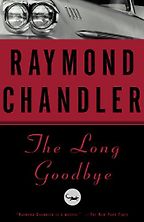
The Long Goodbye by Raymond Chandler
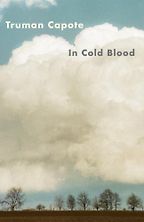
In Cold Blood by Truman Capote
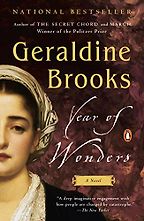
Year of Wonders by Geraldine Brooks

The Gambler by Fyodor Dostoevsky
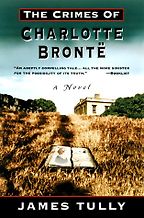
The Crimes of Charlotte Bronte by James Tully
The writer of the hugely successful Prime Suspect television series, Lynda La Plante, selects her own favourite crime novels. We haven’t completed the interview with her yet, but her brief email comments appear beside her choices.

We ask experts to recommend the five best books in their subject and explain their selection in an interview.
This site has an archive of more than one thousand seven hundred interviews, or eight thousand book recommendations. We publish at least two new interviews per week.
Five Books participates in the Amazon Associate program and earns money from qualifying purchases.
© Five Books 2024
- Architecture and Design
- Asian and Pacific Studies
- Business and Economics
- Classical and Ancient Near Eastern Studies
- Computer Sciences
- Cultural Studies
- Engineering
- General Interest
- Geosciences
- Industrial Chemistry
- Islamic and Middle Eastern Studies
- Jewish Studies
- Library and Information Science, Book Studies
- Life Sciences
- Linguistics and Semiotics
- Literary Studies
- Materials Sciences
- Mathematics
- Social Sciences
- Sports and Recreation
- Theology and Religion
- Publish your article
- The role of authors
- Promoting your article
- Abstracting & indexing
- Publishing Ethics
- Why publish with De Gruyter
- How to publish with De Gruyter
- Our book series
- Our subject areas
- Your digital product at De Gruyter
- Contribute to our reference works
- Product information
- Tools & resources
- Product Information
- Promotional Materials
- Orders and Inquiries
- FAQ for Library Suppliers and Book Sellers
- Repository Policy
- Free access policy
- Open Access agreements
- Database portals
- For Authors
- Customer service
- People + Culture
- Journal Management
- How to join us
- Working at De Gruyter
- Mission & Vision
- De Gruyter Foundation
- De Gruyter Ebound
- Our Responsibility
- Partner publishers

Your purchase has been completed. Your documents are now available to view.
A Writer in His Time
- Joseph Frank
Please login or register with De Gruyter to order this product.
- Language: English
- Publisher: Princeton University Press
- Copyright year: 2009
- Edition: With a New preface by the author
- Audience: General/trade;
- Main content: 984
- Other: 31 halftones.
- Keywords: Intelligentsia ; Russian culture ; Russian literature ; Ideology ; The Idiot ; Literature ; The Brothers Karamazov ; Poor Folk ; V. ; Notes from Underground ; Publication ; Atheism ; Newspaper ; Writing ; Serfdom ; Petrashevsky Circle ; Sensibility ; His Family ; Allusion ; Christianity ; Pity ; Poetry ; Novelist ; Romanticism ; Resentment ; Humiliation ; Demons (Dostoyevsky novel) ; Ibid (short story) ; Strakhov ; Hatred ; Censorship ; Bakunin ; The Russian Messenger ; Prince Myshkin ; Narrative ; The Other Hand ; Utopian socialism ; Populism ; Satire ; Suffering ; Stupidity ; Criticism ; Superfluous man ; Deed ; Superiority (short story) ; Westernizer ; Assassination ; Despotism ; Russians ; Evocation ; Russian Life ; Anecdote ; Katorga ; Political prisoner ; George Sand ; Søren Kierkegaard ; The Peasants ; New Generation (Malayalam film movement) ; The Grand Inquisitor ; Old Believers ; Nobility ; Alyosha Karamazov ; Imprisonment ; Parricide ; Short story ; Religion ; Secret police ; Sarcasm ; Irony ; Nihilism ; Prose ; Uncertainty ; Skepticism ; Sadness ; Radicalism (historical) ; Mock execution ; Calculation ; Moral responsibility ; Pochvennichestvo ; Awareness ; Jews ; Utilitarianism ; The Village of Stepanchikovo ; Slavery ; Irritability ; The House of the Dead (novel) ; I Wish (manhwa) ; Victor Hugo ; Constance Garnett ; Household ; Verisimilitude (fiction) ; Leo Tolstoy ; Alexander Herzen ; Peasant ; Winter Notes on Summer Impressions ; Illustration ; Theodicy ; Parody ; Nationality ; The Various
- Published: October 19, 2009
- ISBN: 9781400833412

Fyodor Mikhailovich Dostoyevsky: A Biography
Fyodor mikhailovich dostoyevsky (1821-1881).
Fyodor Mikhailovich Dostoyevsky was a Russian novelist, journalist, short story writer, philosopher and essayist. His literary works explore psychology in the political, social, and spiritual turmoil of 19th-century Russia. His writings reveal a wide range of philosophical and religious themes.
Dostoyevsky is best known for the novels, The Brothers Karamasov, The Idiot , and above all, Crime and Punishment . He has left his mark, still strong a century and a half after his death, on the world of Russian literature with a multitude of scholars studying his works. Russian websites are dominated by discussions about Dostoyevsky. Visitors to St Petersburg find a Dostoyevsky site related either to his life or the settings of his novels around every corner.
One of the reasons for Dostoyevsy’s enduring cultural importance is that he addressed aspects of Russian life in his time, which were no less relevant to the Soviet Russia to come and, now again, in twenty-first century Russia. He prophesied the totalitarianism of the Soviet period. Many of the social problems that preoccupied him and ran strongly through his philosophical, essay and fictional writing are still of concern in modern Russia – the issues of poverty, crime, gambling, alcoholism, family disintegration, child abuse. Those were his recurrent themes.
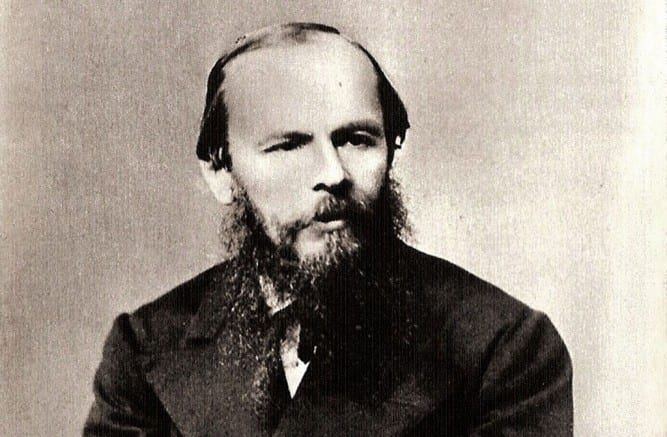
Photograph of Fyodor Dostoyevski
On reading Dostoyevsky today the reader is struck by his far-reaching insights, his preoccupation with concerns that are very much with us today – terrorism, the clash between the Christian and Muslim worlds and the big question of where Russia is going, of how Russia will end up. Theatrical productions and various exhibitions based on Dostoyevsky’s life and works are regularly presented in Russia’s museums and other cultural institutions. The Dostoyevsky Memorial Museum in St Petersburg is arguably the most popular literary museum in Russia. Dostoyevsky walking tours of St Petersburg are among the most popular tours of the city. There have been numerous films and television adaptations of his novels, frequently transplanted in time and place. Rob Schmidt’s Crime and Punishment in Suburbia (2000), for example reworked Dostoevsky’s novel in a contemporary American setting.
The breadth of Dostoyevsky’s scope means that there are always new opportunities for interpretation from which to approach him, so that he is not likely to go out of fashion. Indeed, the past two decades have seen Dostoevsky studies flourish as they have never done before. Read biographies of all of the 30 greatest writers ever >>

Fyodor Dostoyevsky
Russian writer Fyodor Dostoyevsky wrote the classics Crime and Punishment and The Brothers Karamazov. His work explored psychology and existentialism.
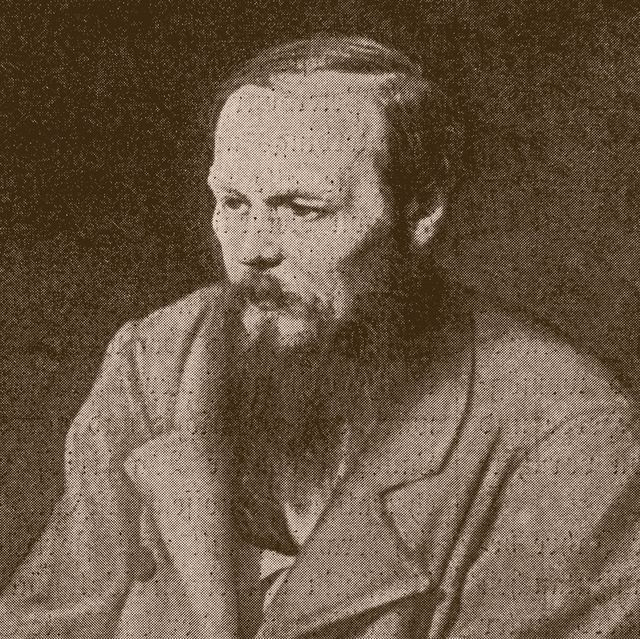
Who Was Fyodor Dostoyevsky
Quick facts.
FULL NAME: Fyodor Mikhaylovich Dostoyevsky BORN: November 11, 1821 DIED: February 9, 1881 BIRTHPLACE: Moscow
Born Nov. 11, 1821 in Moscow, Russia, Fyodor Dostoyevsky was educated at home until 1833. He studied to be a military engineer, but shortly after graduating decided to become a writer. He experienced traumatic events, including a mock execution and exile. His work explored the human condition and is credited with shaping existentialism. Crime and Punishment is one of his most well-known novels.
Fact Check: We strive for accuracy and fairness. If you see something that doesn't look right, contact us !
Famous Authors & Writers
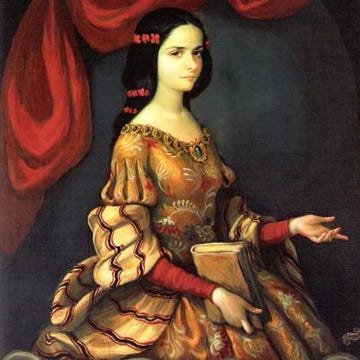
10 Famous Langston Hughes Poems

5 Crowning Achievements of Maya Angelou
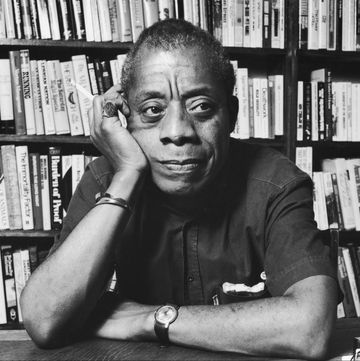
10 Black Authors Who Shaped Literary History

The True Story of Feud:Capote vs. The Swans
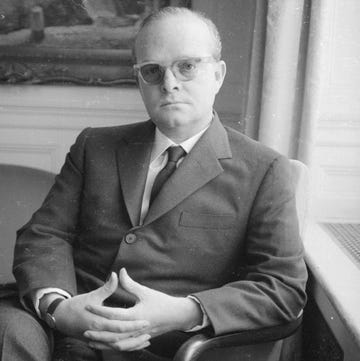
Truman Capote
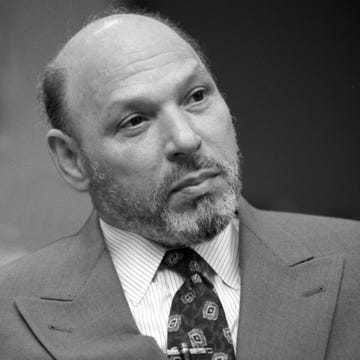
August Wilson

Amanda Gorman
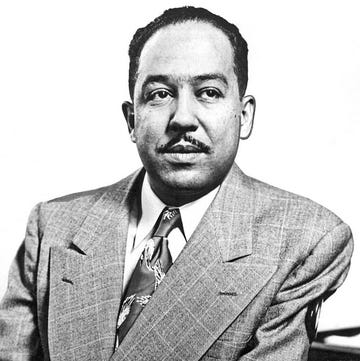
Langston Hughes
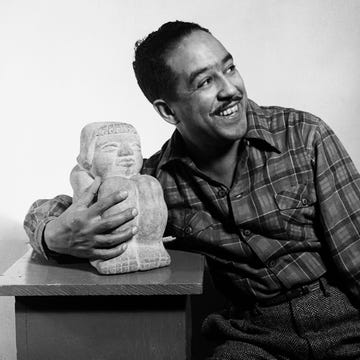
7 Facts About Literary Icon Langston Hughes

Maya Angelou
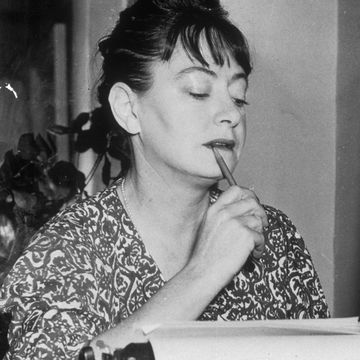
Dorothy Parker
- International edition
- Australia edition
- Europe edition
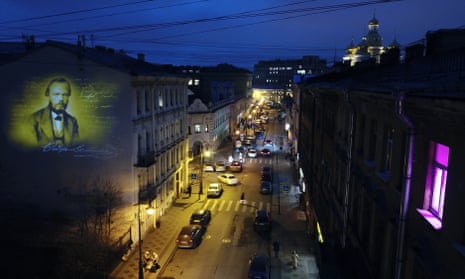
Dostoevsky in Love by Alex Christofi review – unpredictable, dangerous and thrilling
His marriages were disastrous but his words were so rousing they made strangers embrace ... a superb study of the Russian novelist
T he first time he fell in love, Fyodor Dostoevsky was in his mid-30s. He had written two famous novels, Poor Folk and The Double , been arrested for treason, suffered a mock-execution, and served four years of hard labour in Siberia. He was now, in 1854, serving as a private in the army and the object of his desire, Maria Isaeva, was the capricious and consumptive wife of a drunkard called Alexander.
When the Isaevas moved to the mining town of Kuznetsk, 700 versts away in southwestern Siberia (a verst is roughly equivalent to a kilometre), Dostoevsky’s love seemed doomed. But then Alexander died, leaving Maria alone and in poverty. Dostoevsky sent her his last roubles and a proposal of marriage, telling the coachman to wait for her answer before making the week-long journey back through the snow. Maria turned his offer down: she could never marry a penniless private. She then fell in love with a man who was just as poor as Dostoevsky, and also a simpleton: “I barely understand how I go on living,” Dostoevsky wrote, aware that this current melodrama was repeating the plot of Poor Folk .
He eventually married Maria, and had his first full epileptic fit on their wedding night. She never recovered from the sight of his writhing, crumpled body: “The black cat has run between us,” as he put it in The Insulted and the Injured. The couple shared not a single day of happiness, but then it is hard to find many days of happiness in his story at all.
The life of Dostoevsky was nothing if not Dostoevskian . It was suffering, he believed, that gave value to existence: “Suffering and pain are always mandatory for broad minds and deep hearts,” he explained in Crime and Punishment . “Truly great people, it seems to me, should feel great sadness on this earth.” His mother, who was also called Maria, had died of TB when he was 15; soon afterwards his father was found dead in a ditch, possibly murdered by the serfs on his estate. Poor Folk made him a literary sensation but earned him no money, and the little money he did earn was lost on the roulette wheel. While his novels mined the psyche, he did battle with his body: myopia, haemorrhoids, bladder infections, emphysema. By the time he was writing Devils , his seizures had become so severe that he had no memory, when he regained consciousness, of either the novel’s plot or the names of his characters.
Dostoevsky, who died aged 56, did not write an autobiography but “buried his heart”, as Alex Christofi, puts it, in his fiction. Christofi, also a novelist, describes Dostoevsky in Love as less a biography than a “reconstructed memoir”. His method, he explains, has been to “cheerfully commit the academic fallacy” of eliding Dostoevsky’s “autobiographical fiction with his fantastical life”. This is achieved by blending his authorial voice with that of Dostoevsky, in sections lifted from the letters, notebooks and fiction and stitched seamlessly into the text. So as not to interrupt the narrative flow, the sources are given only at the back of the book. It’s a witty motif which works well, not least because it immerses us in the forcefield of Dostoevsky’s thought, which Christofi also employs to explain his own waywardness. “Facts,” as Dostoevsky reminds us in Crime and Punishment and Christofi reminds us here, “aren’t everything; knowing how to deal with the facts is at least half the battle.”
One example of how Christofi deals with the facts can be seen in the account of the mock execution with which Dosteovsky in Love begins. Segueing together descriptions from Dostoevsky’s letters with passages from The Idiot, The Brothers Karamazov and The Insulted and the Injured, Christofi takes us not only into the moment when Dostoevsky faced the firing squad but also into his novelistic response to that moment: “There was no more than a minute left for me to live,” he writes to his brother. “The most terrible part of the punishment,” he reflects in The Idiot , “is not the bodily pain, but the certain knowledge that in a hour, then in ten minutes, then in half a minute, your soul must quit your body and you will no longer be a man.” The effect is of having Dostoevsky in the room with us, reliving the horror of it all while also being aware of what a good story it makes. What becomes clear is that Dostoevsky the lover was not dissimilar to Dostoevsky the epileptic, Dostoevsky the gambler, or Dostoevsky facing his death: each experience was unpredictable, dangerous and thrilling.
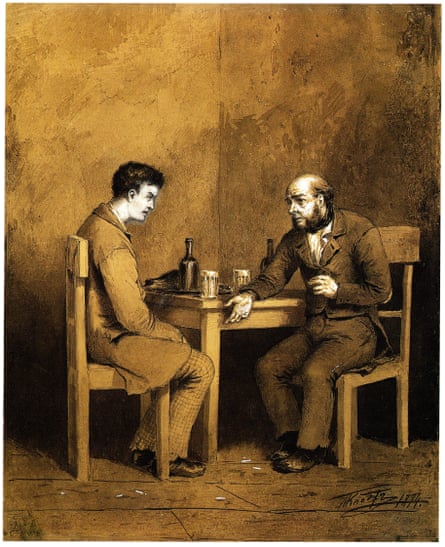
In addition to Maria, Dostoevsky had two further serious love affairs. Polina, the beautiful, unhinged daughter of a serf caused him nothing but grief, while Anna, the stenographer who became his second wife, stood by him while he repeatedly pawned their few belongings and then lost the money at the casino. The way he proposed to Anna, Christofi writes, “is so quietly bashful that you can’t help wanting to hug him”. He is quite right, but I won’t give away the plot.
Christofi’s interest, however, is not only in Dostoevsky as a lover of women. It is also in Dostoevsky as a believer in Christian love. This belief lay at the heart of his novels and by the end of his life he was regarded as a prophet, spreading the gospel of universal harmony. After his famously rousing speech in honour of Pushkin, “strangers sobbed, embraced each other and swore to be better people, to love one another”. Two old men came up to tell him that “for twenty years we’ve been enemies … but we’ve just embraced and made it up. It’s all down to you.”
Novelists tend to make good biographers, not least because they know how to shape a story, and it is no mean feat to boil Dostoevsky’s epic life down to 256 pulse-thumping pages. Dostoevsky in Love is beautifully crafted and realised, but it is the great love that Christofi feels for his subject that makes this such a moving book.
- Biography books
- Fyodor Dostoevsky
- Fiction in translation
Most viewed
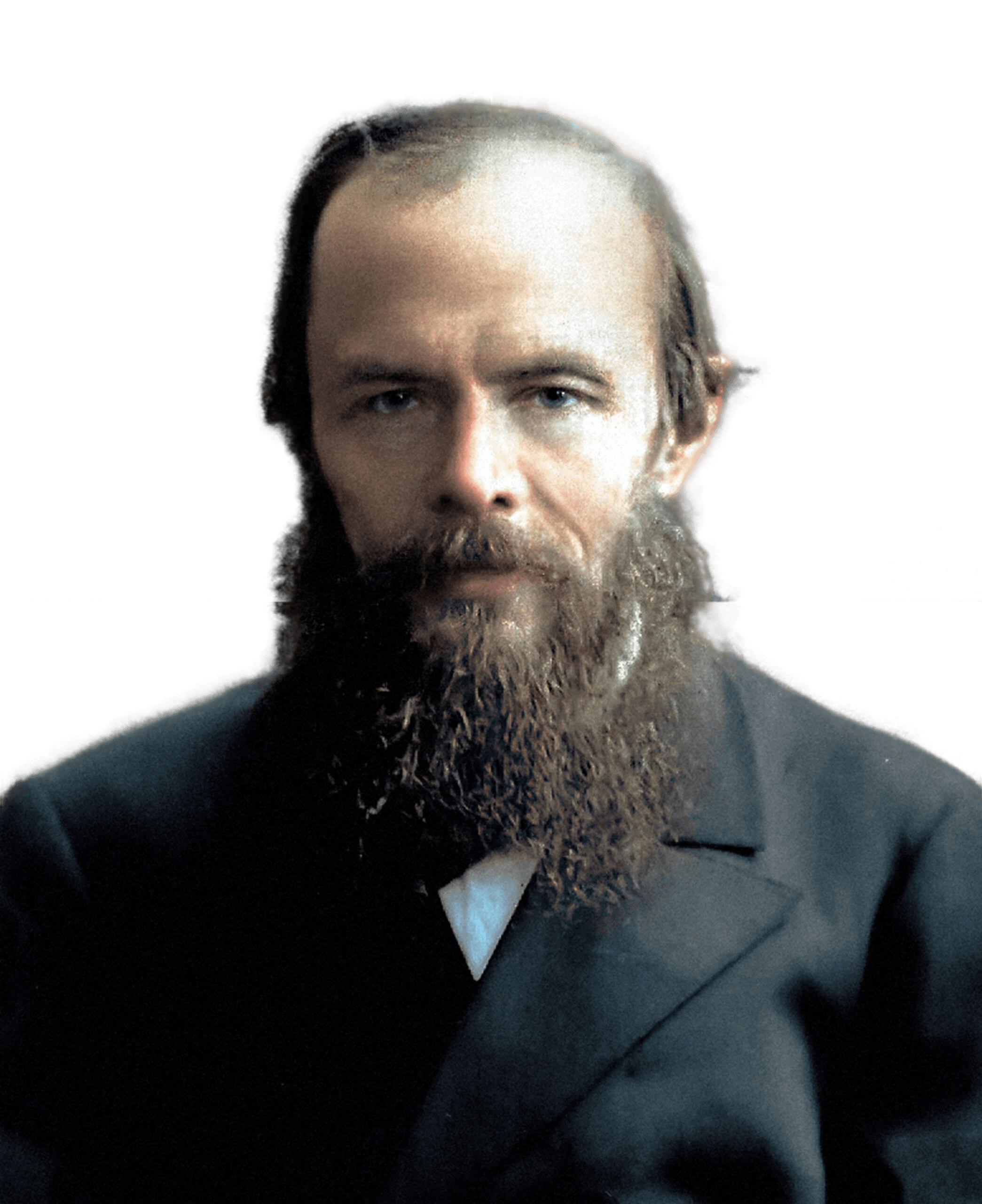
Fyodor Dostoevsky
Great Russian writer
"To love someone means to see them as God intended them"
Date and place of birth: October 30, 1821, Moscow Date and place of death: January 28, 1881, St. Petersburg Occupation: novelist, translator, philosopher Movement: realism Genre: novel, novella, short story, poem Years of oeuvre: 1844-1880
Fyodor Mikhailovich Dostoevsky is a classic of Russian and world literature, according to UNESCO, one of the most readable writers in the world. His most famous books, five books “Crime and Punishment” (1866), “The Idiot” (1868), “The Possessed” (1872), “Teenager” (1875), “The Brothers Karamazov” (1880).
Fyodor Mikhailovich Dostoyevsky was born in 1821 in the Moscow Mariinsky Hospital for the Poor in Tula Province. His father, Mikhail Andreevich, was a doctor at that hospital, and his mother, Maria Fyodorovna, came from a merchant family. The family lived in more than cramped conditions, the father of the family was a real tyrant, and Dostoevsky’s mother passed away early.
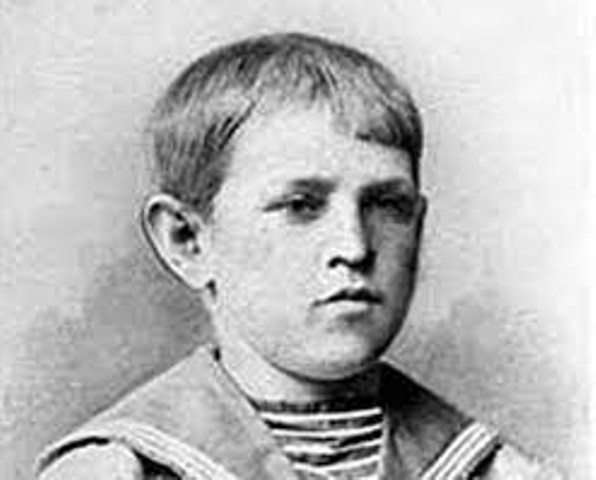
In 1837 Fyodor Dostoevsky and his brother Mikhail moved to St. Petersburg, where after a brief training in a boarding school he entered the Military Engineering School. Dostoevsky called the years of study “hard labor”, he had no interest in military affairs, and devoted most of his time to literature – he read books by Shakespeare, Goethe, Balzac, Hugo, adored the German playwright Schiller, Pushkin and Gogol. After graduating from college in 1843 Fyodor Dostoevsky was enrolled in the St. Petersburg engineering command, but after six months in the rank of lieutenant retired.
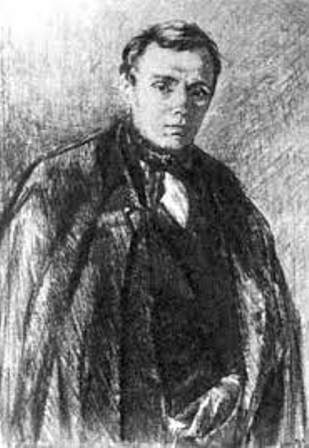
Dostoevsky, the novice writer
Fyodor Mikhailovich Dostoyevsky wrote his first book, Poor People, in 1846. His friend, the writer Dmitry Grigorovich, persuaded him to show the manuscript to Nekrasov, who was publishing the literary magazine Sovremennik at the time. After reading it with the words “A new Gogol has appeared!” Nekrasov took the text to Belinsky, who came to indescribable delight. Dostoevsky would later describe his memories of the meeting with the critic in his book The Writer’s Diary. The success of Poor People was tumultuous, but short-lived. The second story “The Double” (1846) was received coldly, which struck at the ego of Dostoevsky, who already imagined himself a great writer.
Crime and punishment for unwanted views
Beginning in 1847, Dostoevsky began attending radical meetings at the Butashevich-Petrashevsky house, where they often criticized the government. For which he was later arrested and sentenced to eight years of hard labor in Siberia. He described his impressions in Notes from the Dead House (1862), where he also wrote Stepanchikovo Village (1859). In Siberia Fyodor Dostoevsky got married, but the marriage was short-lived. In 1855, Nicholas I died, and his son Alexander II, who granted amnesty to many prisoners, ascended the throne. Among them was Fyodor Dostoevsky.
Birth of a classic of world literature
After his amnesty, Fyodor Mikhailovich Dostoyevsky returned to St. Petersburg, where he and his brother began to publish the literary and political magazine Vremya. It was here that “Notes from the Underground” and “The Humiliated and Insulted” were first published. The magazine existed for a couple of years and was closed by order of the censors, and then the Dostoevsky brothers began publishing the magazine Znamya, but it was subsequently closed due to lack of subscribers.
From 1862 to 1863 he had a relationship with the writer Apollinaria Suslova, with whom the writer traveled to England, Germany and France. But his lady of the heart preferred another, which dealt Dostoevsky a blow. Part of the result was a pernicious passion for card games and roulette, which later brought Dostoevsky a lot of trouble and debt. Later, Fyodor Dostoevsky married Marina Dmitrievna Isaeva, with whom he lived for seven years. In 1864, he lost his wife and his beloved brother Mikhail, taking it upon himself to take care of his family. This meant writing a lot and fast.
The fantastic in creation
In the works of F.M. Dostoevsky there are often enough fantastic motifs, above all, the mystical component in the works.
Dostoevsky twice gave the subtitle “fantastic story” to his works. In The Gentleman, the fantastic device consists in the fact that the narrative is a stream of consciousness of the main character. Nowadays the fantastic nature of this technique is no longer felt, but it was on the example of The Gentleman that Dostoevsky once discussed the characteristics of his method as “realism in the highest sense,” “realism that reaches the fantastic.”
Another “fantastic story,” The Funny Man’s Dream, describes a fragile alien utopia and its destruction under the corrupting influence of an earthling who has gone there.
On the basis of a fantastic assumption – the sudden appearance of the protagonist of his complete double, who gradually takes his place in life – the story “The Double” is built. In “The Mistress” the then fashionable ideas of mesmerism and animal magnetism are used to motivate the plot.
Also fantastical in nature is the story “Bobok,” devoted to the negotiations of the dead in the cemetery. Also, a fantastic assumption underlies one of the author’s most famous humorous stories, “Crocodile” (a commoner swallowed by a crocodile feels very good about himself).
Semi-fantastical, mystical motifs are also found in Dostoevsky’s serious works, such as the novels The Brothers Karamazov (in particular, the chapters “The Grand Inquisitor,” “The Devil. Ivan Fedorovich’s Nightmare”) and The Possessed. Dostoevsky also uses science-fiction imagery, for example, describing Raskolnikov’s dream of intelligent microbes enslaving humanity, an artificial satellite of the Earth in Ivan Karamazov’s conversation with the devil. On the whole, most researchers recognize the presence of a fantastic element in Dostoevsky’s works, both as the basis of the plot and as a means of describing the places of action (“Dostoevsky’s St. Petersburg” is sometimes recognized as a kind of fantastic city, a “ghost town” which does not repeat the real historical St. Petersburg in every detail).
Dostoevsky’s “Great Five Books”
From the mid-1860s Dostoevsky began to write the books that made up his main contribution to world literature, the famous five-book Crime and Punishment (1866), The Idiot (1868), The Possessed (1872), The Teenager (1875), The Brothers Karamazov (1880).
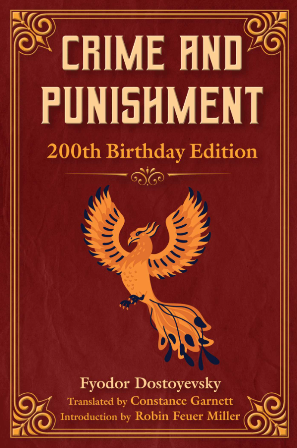
Fyodor Mikhailovich Dostoevsky wrote his main books in a great hurry, sometimes not even having time to reread dictated to stenographers, in order to meet the deadline for the magazines, where chapters of his works were published. “Very often it happened in my literary life that the beginning of a chapter of a novel or novella was already in the printer and in the set, and the ending was still sitting in my head, but must necessarily have been written by tomorrow,” – admitted Dostoevsky.
The Gambler” (1867), for example, was written in just 26 days, simultaneously with the work on Crime and Punishment.
In 1866 Fyodor Dostoevsky married his stenographer Anna Grigoryevna Snitkina. It was a happy marriage, his wife helped him in his work on manuscripts, made his work schedule, comforted him after card losses and guarded his peace from intrusive visitors. Without Anna Grigorievna Dostoevsky’s biography could have turned out quite differently: with her help the family was able to improve their financial situation and pay their debts. In the marriage were born four children.
The published novel “The Possessed” was a huge success, after its publication Dostoevsky was offered to publish in the conservative magazine Grazhdanin. Here Dostoevsky Fyodor Mikhailovich began to publish The Writer’s Diary.
Before his death, Dostoevsky was working on the second volume of the novel The Brothers Karamazov, which brought him his greatest fame. But the real sensation was his speech about Pushkin at the unveiling of the poet’s monument in Moscow in 1880. Fyodor Mikhailovich Dostoyevsky died on January 28, 1881.
‘He will be greatly missed’: Actor Emmet Bergin, best known for Glenroe role, dies
Bergin played the part of dick moran in the popular series which started in 1983.
Emmet Bergin died suddenly on Friday, March 15th. Photograph: Eric Luke
Actor Emmet Bergin, best known for his role in the RTÉ series Glenroe, has died.
Born in Dublin, Bergin played the part of Dick Moran in the popular series which started in 1983.
After the show ended in 2001, he went on to play the role of Aengus Fanning in the 2003 biographical crime film about journalist Veronica Guerin . Bergin was also known for playing the role of Ulfus in the 1981 fantasy film Excalibur. He also voiced radio advertisements for The Irish Times in the 1980s.
His brother, Patrick Bergin, is also a well known actor.
Facing into my first Australian autumn feels like winding down at the wrong time
:quality(70):focal(2592x1818:2602x1828)/cloudfront-eu-central-1.images.arcpublishing.com/irishtimes/L2NJ3FWJXFCGZJAGFQCVU57NK4.jpg)
Kyle Hayes green for go for Limerick after two-year suspended sentence
:quality(70)/cloudfront-eu-central-1.images.arcpublishing.com/irishtimes/YVN5ZFH2CJHT3PAJODPRT3O3RA.jpg)
Tory cheers cannot hide their fears as Rishi Sunak struggles to keep his party onside
:quality(70)/cloudfront-eu-central-1.images.arcpublishing.com/irishtimes/W7ZWTOUJGNWMYQFSNIXA7QC4B4.jpg)
The Lost Peace: How the West failed to prevent a second Cold War by Richard Sakwa - A detailed account of a missed opportunity
:quality(70):focal(759x404:769x414)/cloudfront-eu-central-1.images.arcpublishing.com/irishtimes/TCOFN7S2HVKAF3L7RDEZWI6RBM.jpg)
[ From the archive: Miley gets the last word as 'Glenroe' bows out ]
Emmet Bergin is survived by his wife Sarah and his children, Gavan and Tara. He died suddenly on Friday, March 15th, according to his death notice.
In a statement to RTÉ, his daughter Tara said: “Sadly, dad died on Friday morning at home. It was unexpected. He had only recently been alerted to a possible heart issue and had been discharged from a short stay in hospital.
“We thought and hoped he would be okay. We were all at home when it happened – my mum Sarah, my brother Gavan, and me. He was such an important presence in our lives. He will be greatly missed.”
A service to celebrate his life will be held on Tuesday, March 26th, at Victorian Chapel, Mount Jerome Crematorium, in Harold’s Cross, Dublin.
[ Emmet Bergin: The dashing actor who brought some sizzle to Sunday nights in 1980s Ireland ]
- Listen to our Inside Politics Podcast for the latest analysis and chat
- Sign up for push alerts and have the best news, analysis and comment delivered directly to your phone
- Find The Irish Times on WhatsApp and stay up to date
Jade Wilson
Jade Wilson is a reporter for The Irish Times
IN THIS SECTION
Emmet bergin: the dashing actor who brought some sizzle to sunday nights in 1980s ireland, palm royale review: this 1960s florida beauty may be visually stunning but it’s no mad men, the dropout review: rise and fall of silicon valley darling elizabeth holmes told with riveting verve, liam cunningham: ‘i tell people i’m a migrant. it messes with them. you can see them getting a twitch’, men on horseback cause traffic disruption at protest in coolock, coveney rules out succeeding varadkar after taoiseach stands down as fine gael leader - as it happened, ‘making it here to ireland. it’s a miracle’: family reunited in dublin after fleeing gaza strip, who will replace leo varadkar as fine gael party leader and taoiseach here are the contenders, paddy mckillen jnr seeking €13.5m for three dublin pubs, latest stories, john o’shea keeps focus on belgium tie as lee carsley rules himself out of ireland job, martin and ryan to insist varadkar’s successor commits to coalition going full term, investigation into death of man in cobh following sword attack upgraded to murder inquiry, riveting personality – frank mcnally on an all-american (but part-irish) heroine.
:quality(70)/cloudfront-eu-central-1.images.arcpublishing.com/irishtimes/SJQTLMCMMRC2PLALXUKEWWS6HU.png)
- Terms & Conditions
- Privacy Policy
- Cookie Information
- Cookie Settings
- Community Standards

IMAGES
VIDEO
COMMENTS
Dostoevsky: A Writer in His Time. Paperback - August 26, 2012. Joseph Frank's award-winning, five-volume Dostoevsky is widely recognized as the best biography of the writer in any language―and one of the greatest literary biographies of the past half-century. Now Frank's monumental, 2,500-page work has been skillfully abridged and condensed ...
5 Crime and Punishment by Fyodor Dostoevsky. Y ou are the author of a new biography of Fyodor Dostoevsky (1821-1861). It's a book that intertwines the narrative of his life with his own words, taken from where his fiction has been drawn from lived experience, which is such a great way to do a literary biography.
Childhood (1821-1836) Fyodor Dostoevsky, born on 11 November [ O.S. 30 October] 1821 in Moscow, was the second child of Dr. Mikhail Dostoevsky and Maria Dostoevskaya (born Nechayeva). He was raised in the family home in the grounds of the Mariinsky Hospital for the Poor, which was in a lower class district on the edges of Moscow. [13]
Best Dostoevsky Books Best Overall: Crime and Punishment Most Underrated: The Insulted and Humiliated ... Genres: Non-fiction, Biography, Russian Literature, Classics, Writing, Essays. Spanning from 1873 to 1881, this work is a compilation of Dostoevsky's articles, essays, and notes. He reflects on a wide range of topics, from everyday events ...
Joseph Frank. 4.52. 985 ratings85 reviews. Joseph Frank's award-winning, five-volume Dostoevsky is widely recognized as the best biography of the writer in any language--and one of the greatest literary biographies of the past half-century. Now Frank's monumental, 2500-page work has been skillfully abridged and condensed in this single, highly ...
Praise. Joseph Frank's award-winning, five-volume Dostoevsky is widely recognized as the best biography of the writer in any language—and one of the greatest literary biographies of the past half-century. Now Frank's monumental, 2,500-page work has been skillfully abridged and condensed in this single, highly readable volume with a new ...
Fyodor Dostoyevsky (born November 11 [October 30, Old Style], 1821, Moscow, Russia—died February 9 [January 28, Old Style], 1881, St. Petersburg) Russian novelist and short-story writer whose psychological penetration into the darkest recesses of the human heart, together with his unsurpassed moments of illumination, had an immense influence ...
The novelist Alex Christofi was similarly inspired, and while his innovative biography, Dostoevsky in Love, occasionally intrigues, it ultimately offers little that's new. All three recognize the difficulty of distinguishing Dostoevsky's actual life from the legends about him. ... Best known is the one included in Freud's "Dostoevsky ...
Joseph Frank's award-winning, five-volume Dostoevsky is widely recognized as the best biography of the writer in any language--and one of the greatest literary biographies of the past half-century. Now Frank's monumental, 2500-page work has been skillfully abridged and condensed in this single, highly readable volume with a new preface by the author.
Joseph Frank's award-winning, five-volume Dostoevsky is widely recognized as the best biography of the Russian novelist in any language and one of the greatest literary biographies ever written. In this monumental work, Frank blends biography, intellectual history, and literary criticism to illuminate Dostoevsky's works and set them in their personal, historical, and ideological context.
Full Name: Fyodor Mikhailovich Dostoevsky Known For: Russian essayist and novelist Born: November 11, 1821 in Moscow, Russia Parents: Dr. Mikhail Andreevich and Maria (née Nechayeva) Dostoevsky Died: February 9, 1881 in St. Petersburg, Russia Education: Nikolayev Military Engineering Institute Selected Works: Notes from Underground (1864), Crime and Punishment (1866), The Idiot (1868-1869 ...
The biography of Russia's greatest novelist by his daughter, Aimée Dostoevsky. Includes chapters on the origins of the Dostoevsky family, the childhood of Fyodor Dostoevsky, adolescence, the Petrachevsky conspiracy, prison life, Dostoevsky as soldier, Dostoevsky's marriages, his travels, Dostoevsky as a father, his relations with Turgenev and Tolstoy, Dostoevsky as Slavophile and ...
Crime and Punishment (1866) The best way to get acquainted with Dostoyevsky is by reading Crime and Punishment. One of the best-known books by the author, as well as a must-read for all Russian kids at school, this one is truly a classic. The story of a poor man that commits a crime in order to survive, but then deals with a greater struggle ...
Fyodor Dostoevsky Biography. Fyodor Dostoevsky is credited as one of the world's greatest novelists and literary psychologists. Born in Moscow in 1821, the son of a doctor, Dostoevsky was educated first at home and then at a boarding school. When he was a young boy, his father sent him to the St. Petersburg Academy of Military Engineering ...
The Brothers Karamazov. Written at the tail end of Dostoevsky's life, The Brothers Karamazov represents a culmination of Dostoevsky's most passionate ideas in their most mature form. Revolving around a patricide with three children and a lover at the very center, we are treated to a story that explores themes like faith, passion, justice ...
Fyodor Dostoevsky. Fyodor Dostoevsky (1821-1881) was one of Russia's great novelists. While best known as the author of Crime and Punishment and The Brothers Karamazov, several of his other novels have also been recommended on Five Books, including Memoirs from the House of the Dead, a fictionalized account of his time in a Siberian labour camp. ...
Published: October 19, 2009. ISBN: 9781400833412. Joseph Frank's award-winning, five-volume Dostoevsky is widely recognized as the best biography of the writer in any language--and one of the greatest literary biographies of the past half-century. Now Frank's monumental, 2500-page work has been skillfully abridged and condensed in this single ...
Refresh and try again. Rate this book. Clear rating. 1 of 5 stars 2 of 5 stars 3 of 5 stars 4 of 5 stars 5 of 5 stars. The Brothers Karamazov. by. Fyodor Dostoevsky. 4.37 avg rating — 330,180 ratings — published 1880 — 4288 editions. Want to Read.
Fyodor Mikhailovich Dostoyevsky was a Russian novelist, journalist, short story writer, philosopher and essayist. His literary works explore psychology in the political, social, and spiritual turmoil of 19th-century Russia. His writings reveal a wide range of philosophical and religious themes. Dostoyevsky is best known for the novels, The ...
Quick Facts. FULL NAME: Fyodor Mikhaylovich Dostoyevsky BORN: November 11, 1821 DIED: February 9, 1881 BIRTHPLACE: Moscow. Who Was Fyodor Dostoyevsky. Born Nov. 11, 1821 in Moscow, Russia, Fyodor ...
T he first time he fell in love, Fyodor Dostoevsky was in his mid-30s. He had written two famous novels, Poor Folk and The Double, been arrested for treason, suffered a mock-execution, and served ...
The bibliography of Fyodor Dostoyevsky (1821 - 1881) comprises novels, novellas, short stories, essays and other literary works. Raised by a literate family, Dostoyevsky discovered literature at an early age, beginning when his mother introduced the Bible to him. Nannies near the hospitals—in the grounds of which he was raised—introduced ...
Biography. Date and place of birth: October 30, 1821, Moscow Date and place of death: January 28, 1881, St. Petersburg Occupation: novelist, translator, philosopher Movement: realism Genre: novel, novella, short story, poem Years of oeuvre: 1844-1880 Fyodor Mikhailovich Dostoevsky is a classic of Russian and world literature, according to UNESCO, one of the most readable writers in the world.
Actor Emmet Bergin, best known for his role in the RTÉ series Glenroe, has died. Born in Dublin, Bergin played the part of Dick Moran in the popular series which started in 1983. After the show ...